


Ask the Experts: Overcoming Teen Dating Violence
In this monthly column, therapists from North Shore Child & Family Guidance Center answer your questions on issues related to parenting, mental health, and children’s well-being. To submit a question, email communications@northshorechildguidance.org.
Question: Our 16-year-old daughter has been severely depressed since breaking up with her boyfriend, who has been harassing and cyberbullying her. He is posting cruel messages about her online, sharing private details of their relationship to embarrass her, and encouraging others to exclude her at school. We were shocked to learn that he had treated her poorly even before the breakup, though she hasn’t been open about what transpired. Now, she’s saying she just wants to disappear, and we’re terrified she might hurt herself. How can we support her emotionally, protect her from further harm, and help her heal from this toxic situation?
– Helpless Parent
Dear Helpless Parent: Finding out that your child has been a victim of teen dating violence is heartbreaking and difficult to navigate for the entire family. When a teen is experiencing interpersonal abuse, whether psychological, sexual, or physical, it can take a severe toll on their mental health, leading to depression, isolation, and even suicidal thoughts.
It’s important to help your daughter recognize that her ex-boyfriend’s actions of spreading false rumors, name-calling, and threats are tactics of control. Abusive partners often manipulate their victims by making them feel unworthy, isolating them from loved ones, and using technology to harass and intimidate. Unfortunately, this behavior is not uncommon. According to the Centers for Disease Control and Prevention, among high school students who dated, about 1 in 12 experienced physical dating violence, and 1 in 10 experienced sexual dating violence, with females experiencing higher rates of both forms of violence than males.
By creating a safe space for open conversation, you let your daughter know that you are there to listen without judgment. Encourage her to share her feelings and thoughts by asking open-ended questions about what she is going through and what she needs, but understand that it may be difficult for her to talk about the trauma she has experienced. It’s important to reassure her that what happened is not her fault and that she is not alone.
Social media has made it more difficult to step away from harassment that might otherwise be confined to school. Enforcing healthy boundaries and digital safety with your daughter will allow her to feel safe at home again, away from the abuse of her ex-boyfriend. Help her adjust her social media privacy settings to protect herself from further harassment, and ensure that she blocks her ex-boyfriend. Reach out to school officials, who may have protocols in place to keep your daughter safe during the school day.
Recognizing the signs of trauma is vital in helping your daughter heal. If she becomes withdrawn, anxious, or irritable, these may be indicators of further emotional distress brought on by her experience. Signs of depression and suicidal thoughts are immediate cause for bringing her to a professional so that she can begin to work through her distress.
Teens recovering from dating abuse need mental health support to rebuild self-esteem and regain a sense of safety. Individual and group therapy can help your daughter recognize what a healthy relationship looks like and develop the tools she needs to move forward.
At North Shore Child & Family Guidance Center, we provide urgent mental health services for children and families facing dire situations like this. Our Triage and Emergency Services team is here to help your daughter develop the strength to overcome this trauma and the tools to learn what a loving, respectful relationship is like.
To learn more about our lifesaving programs, call the Guidance Center at (516) 626-1971 or visit www.northshorechildguidance.org. In case of an emergency after hours, contact our partners at Long Island Crisis Center, (516) 679-1111.
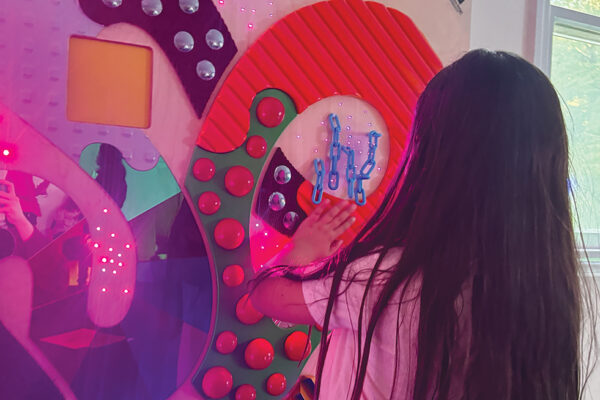
Therapeutic sensory room opens at the guidance center
February 6, 2025, Published in Long Island Business News
North Shore Child & Family Guidance Center unveiled its sensory room at the Marks Family Right from the Start 0-3+ Center in Manhasset. This new initiative enhances the guidance center’s comprehensive range of programs, providing new therapeutic interventions for every child and family seeking care. The room is designed to help clients regulate their emotions, behaviors and sensory responses in a secure and supportive environment.
The space is also equipped with various tools, including tactile walls, interactive projections and calming agents. It caters to both sensory-seeking and sensory-averse clients, allowing each child to explore and interact in a way that feels natural and empowering.

Guidance Center Gala Raises Quarter Million
Published on November 19, 2024, Long Island Press, Long Island Business News
North Shore Child & Family Guidance Center’s Hope and Healing Gala was a night to remember, celebrating the transformative work of the Long Island’s premiere nonprofit children’s mental health organization. Held on November 13, 2024 at North Hempstead Country Club, the event brought together community leaders, supporters, and friends to raise nearly a quarter million dollars in support of vital programs and services.
“When you’ve been around for as long as we have, you know that the only way to keep going is by moving forward,” said Alexis Siegel, President of the Board of Directors. “By listening and responding to the changing needs of the community, we have kept a finger on the pulse of what is most needed by the children and families on Long Island.”
The evening honored Dr. Ramin Rak, neurosurgeon at NSPC Brain and Spine Surgery and Founder/CEO of iMind Brain Food. Dr. Rak consistently amplifies the connection between the health of the mind and body and is a valued supporter of the Guidance Center.
“The strides we are making in medicine are extraordinary, constantly pushing the boundaries of what is possible and giving patients hope where there was once none,” noted Dr. Rak. “But for all the progress we make in the operating room, it is organizations like the Guidance Center that create the environments where healing and transformation can continue beyond the operating room walls.”
Justine Hofsiss, a client of the Diane Goldberg Maternal Health & Wellness Program, shared a moving account of her journey with postpartum depression and anxiety. “I’m not exaggerating when I say that the Guidance Center saved my life,” she said, joined at the podium with the support of her husband. “They helped me see a future that I couldn’t imagine for myself in my darkest days. My children have a happy and healthy mom, and I can be there for my family just like they were there for me. I’m grateful beyond words to this incredible organization that gave me back hope and joy in my life.”
The evening’s music was provided by Peat Moss and the Fertilizers, who got guests out of their seats and onto the dancefloor. Holly Marcell, the 10th grade daughter of Board Members Andrew and Carol Marcell, captivated the audience with a touching performance of “She Used to Be Mine” from the musical Waitress, a song that emphasizes the importance of self-love.
Kathy Rivera, the Guidance Center’s Executive Director/CEO, thanked the evening’s Emcee, Stacey Sager of Channel 7 Eyewitness News, and the sponsors and underwriters of the event: Maureen & John Ferrari; Klipper Family Foundation; The Schott Foundation; WABC-TV; Marilyn & Russell Albanese; Americana Manhasset; SompoRe; Mary Margiotta & Vasu Krishnamurthy; Susan Isaacs & Elkan Abramowitz; and Lauren & Jonathan Schiff.
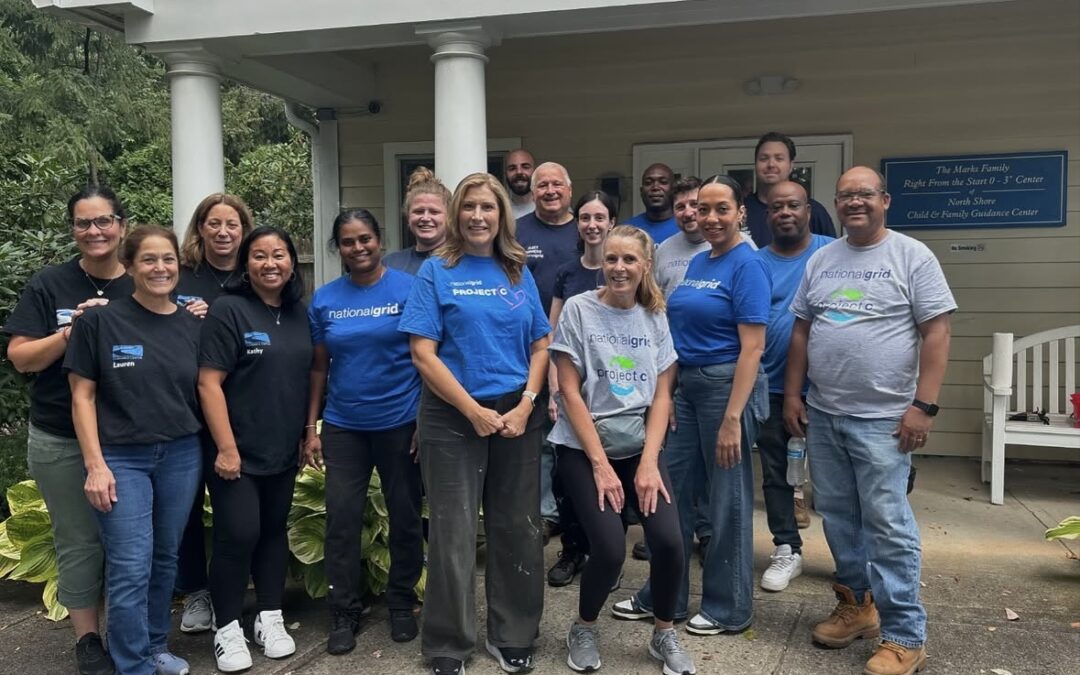
National Grid Transforms the Guidance Center
Published Oct 17, 2024
On Sept. 20, North Shore Child & Family Guidance Center welcomed a team of National Grid volunteers to the Marks Family Right From the Start 0-3+ Center as part of the company’s statewide day of service, known as Project C.
For the third year in a row, National Grid volunteers dedicated their time to various projects throughout the Guidance Center by painting, cleaning and transforming rooms into beautiful, functional facilities that are now ready to serve the community.
“We are so grateful for the amazing work of the National Grid volunteers,” Sue Cohen, director of early childhood and psychological services at the Right from the Start Center, said. The Guidance Center serves its youngest clients and their families.
“The group was enthusiastic in taking on every project that we suggested, no matter how big or small, and some that they identified on their own,” she continued. “Their efforts resulted in a brand-new group therapy room, which will be put to immediate use with our fall programs, and a calming lactation room that was transformed from an old office space. This tranquil setting is now ready for postpartum clients and staff members alike.”
When materials for the sensory room, a major initiative at the Guidance Center, didn’t arrive in time for the Day of Service, National Grid generously arranged for a second team of volunteers to return the following Friday to assemble the wide range of sensory equipment.
“National Grid volunteers went above and beyond to perfect the space and set up the state-of-the-art equipment for our use,” Cohen said. “We are so grateful for all of their hard work and continued support of our mission.”
“We are proud to support the communities where we live and work,” said Brian Sapp, regional director of external affairs at National Grid.
“Giving back is important to us, and it’s extremely rewarding to see the impact we can make. Volunteering at North Shore Child & Family Guidance Center was rewarding and we are proud to have the opportunity to contribute by offering our resources and support,” he continued. “Nonprofits like the Guidance Center play a crucial role in improving the lives of young people on Long Island, and we’re honored to work alongside them.”
If your company would like to discuss opportunities to volunteer at the Guidance Center or support our mission in other ways, contact Lauren McGowan at LMcGowan@northshorechildguidance.org.

Experiencing racism in school may trigger mental distress, substance abuse in students, CDC survey says
Published Oct 31, 2024, By Tiffany Cusaac-Smith
On a Wednesday evening in a university classroom in Patchogue, about a dozen Long Island teachers were learning a lesson that could alter the course of their students’ lives.
From choosing appropriate books in classrooms to handling off-the-cuff remarks, the class at St. Joseph’s University, New York, talked about how racism can sometimes creep into learning environments and adversely impact the mental health of their students.
One teacher discussed an instance where one child called another one racist. Another teacher with Spanish-speaking students learning English said she introduced books with both languages to calm concerns about speaking the new tongue.
At that point, the professor, Renee White, responded, saying: “That’s the whole reason why we need diverse books in the classroom, because it has an impact on the children’s mental health.”
WHAT NEWSDAY FOUND
- A recent study from the Centers for Disease Control and Prevention found that high schoolers who experienced racism at school were more likely to turn to substance abuse as well as to develop mental distress.
- The survey found that nearly a third of high schoolers said in 2023 that they experienced racism in school.
- Experts said the research points to the need for schools to offer more staff training to counter racism and to offer more support for youth.
“It builds their self-esteem,” said White, who holds a doctorate in education. “It gives them a positive self-confidence.”
These weekly evening classes are aimed at giving teachers the cultural sensitivity to confront racism in schools, which can have grave consequences for the mental health of youth, researchers said.
Link with mental health
A recent study from the U.S. Centers for Disease Control and Prevention found that high schoolers who experienced racism at school were more likely to turn to substance abuse and/or develop mental distress.
The survey, drawn from more than 20,000 student questionnaires in 155 schools nationally, found that nearly a third of all high schoolers said in 2023 that they experienced racism in school. The survey covered a nationally representative group of ninth- to 12th-graders, the CDC said.
Yet there were crucial differences when the survey was stratified for race. Black and Hispanic students who said they’ve dealt with racism tended to report a higher frequency of mental health distress and/or substance use, compared with people in those groups who hadn’t experienced racism, the report said.
For instance, roughly 57% of Asian American students reported experiencing racism in school — the highest rate among all racial/ethnic groups included in the survey. Of those teens, 43% reported having “persistent feelings of sadness or hopelessness.” The rate was about 19% for those who had not had contact with racism.
About 20% of Asian American students who reported being exposed to racism in school also said they seriously considered attempting suicide, the report found. For Asian American students without that exposure, the prevalence of suicidal ideation was about 6%.
The study reported that roughly 50% of multiracial students and about 46% of Black students experienced racism in school.
About 50% of Black students who encountered racism reported having “persistent feelings of sadness or hopelessness,” compared with around 30% of those who did not deal with prejudice.
Among mixed-raced students, the numbers were similar: Nearly 53% of those who experienced racism expressed the same sentiment, compared with roughly 31% of those who had not dealt with racism.
Mental health experts say students’ experiences with racism can vary, ranging from statements from other students or school staff to possible disparities in how the administration disciplines students.
Developing cultural sensitivity
Even when discrimination is not expressed overtly, experts say, subtle statements, such as those telling a student they should or shouldn’t achieve a certain level of success because of their racial background, can have a negative impact.
Wilfred Farquharson IV, a licensed psychologist and clinical associate professor of psychiatry and behavioral health at Stony Brook Medicine, said those subtler forms of racism can amount to “a death of 1,000 cuts.”
“That additional stress, either of ‘you should be doing this,’ or ‘you should not be doing that,’ or ‘you belong here’ versus ‘you do not belong here’ — those things impact young people’s mental health as they’re trying to achieve and are trying to adjust,” he said.
Experts said the research points to the need for schools to offer more staff training to offset racism in schools and offer more support for youth.
Farquharson said schools also can make sure that educational materials discuss people of color in appropriate ways.
Teachers and mental health professionals, he said, can affirm the identities of all students through celebratory holidays and other aspects that serve as preventive measures against racism.
Gordon Zhang, president of the Long Island Chinese American Association, emphasized the need for better cultural education for students and staff, something he said has been improving in recent years. However, he noted that derogatory statements toward Asian American students often come from a lack of knowledge.
“You cannot know something if you don’t know,” Zhang said. “There’s no way you can do the right thing.”
However, some experts note that such recommendations about inclusion come as some programs dealing with diversity in schools and cultural sensitivity are being rolled back and reconsidered.
A 2023 study by the nonprofit Long Island Strong Schools Alliance found that half of Long Island school districts had made “little or no progress in implementing the state’s policy on diversity, equity, and inclusion,” referring to the Board of Regent’s 2021 policy on DEI.
Republicans in at least 20 states have put forward nearly 50 pieces of legislation that would limit diversity, equity and inclusion programs in schools and other places, The Associated Press reported earlier this year, citing its analysis using a bill-tracking software.
Conversely, Democratic lawmakers in about 10 states have proposed around 24 bills that encourage or require such initiatives, the AP reported.
“How do you address this when you have many people who are seeking to pretend that racism doesn’t exist and that anything talking about racism, acknowledging it or seeking to address it … is a problem?” asked Laura Harding, president of ERASE Racism, a Syosset-based racial justice organization.
Ignoring mental health
Most racial groups that experienced racism also had higher numbers of abuse of substances, such as marijuana, opioids and tobacco, the CDC report said.
Sudha Sarker, a clinical supervisor of a North Shore Child & Family Guidance Center program for people dealing with substance abuse and mental health concerns, said not addressing the source of those concerns can lead a young person to self-medicate, get poor grades, or to be disruptive in school.
“And that is happening because their mental health … is maybe being pushed off. It’s not the first thing that comes to a teacher’s mind or a parent’s mind when” a child is not doing well, she said.
White, who teaches the course at St. Joseph’s University, New York, said many teachers are unaware of their impact on a child’s psyche.
“They just need to be more aware and more critical as to what practices they are implementing,” said White, who is also founder of Renee’s Way Inc., where she does education consulting and women’s empowerment.
Throughout her semester, though, she said she often saw her students move from hesitancy to understanding as they worked through analyzing curriculums and learning about sensitivities.
White said she has heard teachers make such remarks as: “I’ve lived an isolated life,” or “I hope I haven’t ruined a child.”
By the end of the course, she tells students now that they have more knowledge of the impacts of racism in education, they have a responsibility to do better.
“What will you do differently now that you know?” she said.
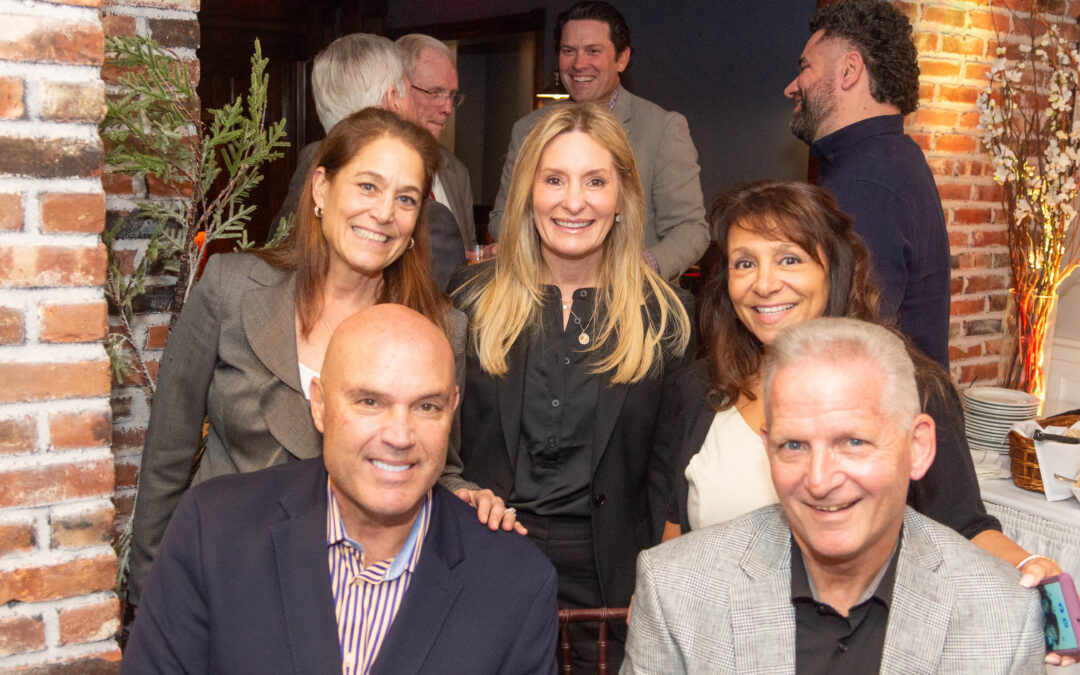
Guidance Center hosts benefit for Children’s Center
North Shore Child & Family Guidance Center hosted a fundraiser on Oct. 16 for an evening of dinner and music benefiting the Children’s Center at Nassau County Family Court. Hosted at Stewart Manor Country Club with a record number of attendees, the event raised more than $13,000, which will go directly towards providing care and early learning to more than 1,400 children annually, ages 6 weeks – 12 years, while their parents or guardians are conducting business in family court.
Kathy Rivera, Executive Director and CEO of the Guidance Center, thanked the two full-time staff members and the valued volunteers, without whom the Children’s Center’s high level of service would not be possible.
“The Children’s Center is a vital resource, allowing children to be cared for in a safe, nurturing, early-learning environment while their parents or guardians are conducting court business,” Rivera said. “Many of these families are here during their darkest times, and we ensure that no child is exposed to what happens in the courtroom. We are so proud that the Children’s Center is able to provide this free service to anyone who walks through the doors.”
“The Children’s Center is such an important component of family court,” said Judge Ellen Greenberg, a continued supporter and judge at Nassau County Family Court. “Not every family court in the state of New York has a children’s center that remains open Monday through Friday from 9-5. It makes a difference when parents can come into court without worrying about whether their children will be okay. They know that, with our well-trained staff and volunteers, their kids will have a fantastic time.”
The evening featured special guest, New York Giants two-time Super Bowl Champion, Sean Lendeta, who came out to sign autographs for guests in support of the Children’s Center.
Rivera also thanked the co-chairs, Allison Cacace, Tanya Mir, Nassau County Women’s Bar Association President Tammy Smiley, Esq., Cherice P. Vanderhall-Wilson, Esq., and John Zenir, Esq., for their ongoing dedication to the Children’s Center.
The fundraiser was sponsored by an array of local law firms and other businesses, including Arthur Brasco, Casino One Limousine, Rene Joseph, Nassau County Women’s Bar Association, Hon. Frank N. Schellace, SCL Law Group, Derell Wilson & Cherice Vanderhall Wilson, Esqs., Laurie Yehuda, and John Zenir.
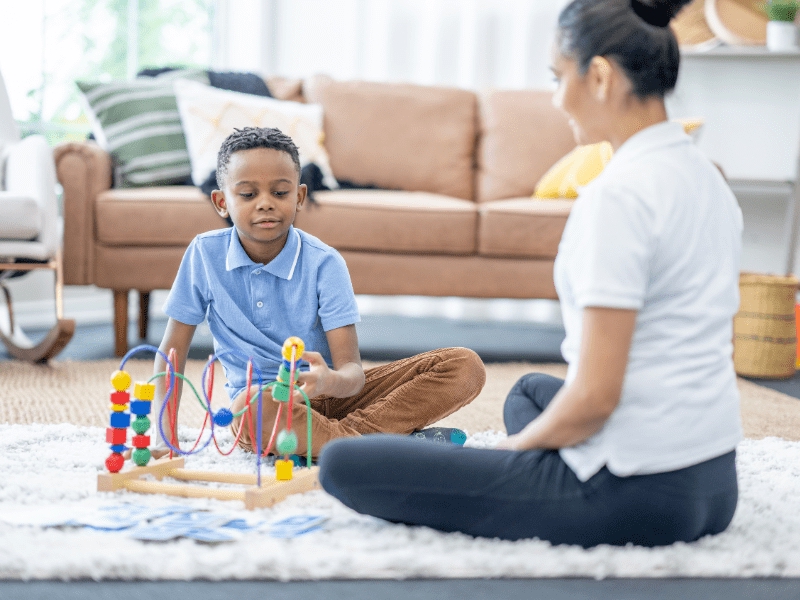
Child mental health: More LI pediatricians prescribing medication for psychiatric issues
Published Nov 26, 2024, By Bart Jones
Dr. Marc Lashley received almost no training in medical school in how to deal with children’s mental health issues. But when he started practicing as a pediatrician, he found there was a critical — and unmet — need because of a shortage of child and adolescent psychiatrists.
With the help of a training program created partly by a Long Island psychiatrist, he started prescribing drugs to treat anxiety and depression in children and adolescents. A decade ago, it made up 2% of his practice. Today, it is 20%.
“It’s given me a tremendous satisfaction,” said Lashley, who is based in Valley Stream and Far Rockaway. “There’s nothing like helping somebody who’s undergoing depression, anxiety and not functioning. It’s really the most rewarding part of my practice right now.”
Lashley is part of a growing trend in the medical world: pediatricians who are prescribing medication for anxiety, depression, ADHD and other illnesses amid the mental health crisis because of a lack of child and adolescent psychiatrists. Not enough people are going into psychiatry partly because of the long training involved, experts said.
Click here for the Newsday Article
WHAT NEWSDAY FOUND
- A growing number of pediatricians are prescribing antidepressants and other drugs to treat mental health issues in children and adolescent because of a shortage of child and adolescent psychiatrists.
- A Long Island psychiatrist is helping to lead a program called Project Teach that trains pediatricians in this work — a program that is attracting attention around the country.
- Some medical experts are nervous that pediatricians lack the background to delve into mental health treatment, but others say there is no choice — many children will go without care otherwise.
Some pediatricians say they have little choice but to help fill the gap, since it’s extremely difficult for families to find available child and adolescent psychiatrists. Most have monthslong waiting lists or aren’t accepting new patients at all.
Even if families can find an available psychiatrist, most do not accept insurance, leaving families with an out-of-pocket bill that can hit $500 or $800 or more for a monthly visit, medical experts said. And even if a child is going to a therapist, only a doctor can prescribe medication.
“There will never be enough child psychiatrists to take care of the mental health needs” of children and adolescents, said Dr. Victor Fornari, the vice chair of child and adolescent psychiatry for Northwell Health. “Certainly, working with a trusted primary care physician is better than not working with anyone.”
Training pediatricians to prescribe
He is one of main creators of Project Teach, a program that has trained 2,000 pediatricians in New York State in how to prescribe medications for depression and other mental health issues. The state-funded project, which operates mostly online, is gaining attention around the country and even overseas as a possible solution to the psychiatrist shortage.
Fornari noted that most psychiatric medicine in the United States and around the world is prescribed by non-psychiatrists, mainly primary care physicians, who are “really in the best position to evaluate and treat these mild to moderate issues” since they know the families and usually accept their insurance.
But he stressed that pediatricians in the program aren’t dealing with more advanced mental health issues. If a patient is suicidal or has some other major disorder, a psychiatrist would have to be brought in.
Dr. David Kaye, a professor of psychiatry at the University at Buffalo who helped create Project Teach, said, “Increasingly families look to and feel comfortable with going to their primary care doctors and clinicians for help with these kinds of things. They know their pediatricians … They trust them.”
“If it is seen as part of primary care then people don’t have to feel so ashamed and have a barrier to getting help when it is only available through a psychiatrist for example,” he said. “There is still tremendous stigma and there are a lot of barriers to people seeing a psychiatrist.”
Not everyone is enthusiastic about pediatricians delving into mental health treatment. Critics contend they lack enough training and are susceptible to making mistakes.
“I don’t think it’s a good idea for pediatricians to treat children without the extensive training that is required,” said Dr. Meena Ramani, who is both a pediatrician and psychiatrist based in Nassau County. “The ideal situation for a family and a child is to be treated by the expert.”
At a minimum, pediatricians should work in collaboration with a child and adolescent psychiatrist, she said.
Jeffrey Friedman, CEO of the nonprofit Central Nassau Guidance & Counseling Services in Hicksville, said many pediatricians “feel very uncomfortable having to prescribe psychotropic medications to individuals. They’re not doing this day in and day out. They’re not keeping up on the latest trends in the field and are struggling to come up with the most effective treatment for those individuals. It’s not their specialty and they’re not trained in that.”
Sometimes when families come to his agency, “our psychiatrist will change those medications because they are not the most effective or efficient treatment for a particular disorder that an individual has,” he said.
But Fornari and others say there are few options other than relying on pediatricians and family physicians, and that Project Teach successfully trains non-psychiatrists to take on such work.
“Without this program, these kids don’t get care,” he said.
He estimates that 12% of youths nationwide are taking medication for mental health issues, but that 25% could probably benefit from the drugs — if there were enough pediatricians or psychiatrists prescribing them.
A nationwide shortage
The psychiatrist shortage is unlikely to end soon, medical experts said. There are 1,247 child and adolescent psychiatrists in New York State, placing it in the category of “high shortage,” according to the American Academy of Child and Adolescent Psychiatry, a nonprofit professional association based in Washington, D.C. Nassau County has 131, while Suffolk has 87, putting them in the high shortage category. Many counties upstate have none, meaning families would have to travel two or three hours to reach one.
Most of the rest of the country is even worse off, with most states classified as “severe shortage,” the academy states. Only one has adequate levels — Vermont.
In contrast, New York State has a total of 8,800 pediatricians and family medicine doctors. They could handle many of the lower-level mental health issues of patients, Fornari and Kaye contend. It’s the same situation nationwide: 11,422 child and adolescent psychiatrists, as opposed to 147,860 pediatricians or family medicine doctors, according to the U.S. Bureau of Labor Statistics.
It’s unlikely there will be a big wave of new psychiatrists to make up for the shortage, Fornari said. A maximum of 350 child and adolescent psychiatrists nationwide complete their post-medical school residencies per year, making them eligible to start practicing in the field, he said.
At Zucker School of Medicine at Hofstra/Northwell, he runs one of the largest residency programs in the nation, and it sees only 10 child and adolescent psychiatrists complete their residency per year. Most programs produce even fewer — two or three a year, he said.
The federal government has set the number of residencies at 350 for decades, Fornari said. It does so in this field and others as it tries to gauge how many doctors with specializations the nation needs. And it has the power to do so in part because it helps fund the residency programs.
Yet many years not all of the 350 slots are filled — sometimes the number is as low as 300, Fornari said. He thinks the country needs 1,000 slots, but even if they were established not enough medical school graduates are signing up.
Many doctors don’t want to go into psychiatry because it takes years more of training after medical school compared to other branches of medicine, Ramani said. Pediatricians, for instance, do three years of residency after medical school but child and adolescent psychiatrists must do five to six. It becomes difficult to remain that long in low-paying residency positions because many aspiring doctors already are hundreds of thousands in debt from four years of undergraduate studies and four years of medical school, she said.
The development of telehealth has not solved the psychiatrist shortage either, since they can only see the same limited number of patients per day whether in-person or on a screen, medical experts said. Telehealth simply means a patient does not have to go to a doctor’s office — the appointments are not shorter.
Collaborating to meet the need
Mental health problems are on the rise among American children and adolescents, exacerbated by the COVID-19 pandemic, the ubiquity of smartphones and screen time, social media, and increased pressure to perform at school and in sports, according to Fornari and other experts.
Project Teach, founded in 2010 at the request of the New York State Office of Mental Health, is trying to meet the growing need for help.
Participants go through intensive in-person or online training lasting between six and 15 hours, and then have periodic follow-up sessions. Fornari, Kaye and others lead the training. The program is an unusual collaboration among seven medical teaching hubs throughout the state: Northwell’s Zucker, Albert Einstein College of Medicine in the Bronx, the University at Buffalo, the University of Rochester, SUNY Upstate Medical Center, Albany Medical Center and Columbia University Medical Center/NY State Psychiatric Institute.
After taking the classes, or even if they did not, pediatricians or any clinician who treats children have access to a free telephone “warmline” that connects them with a child and adolescent psychiatrist if they need help treating a patient. The “warmline” operates Monday through Friday 9 a.m. to 5 p.m. and usually gets eight or nine calls a day, Kaye said. Typically the psychiatrist calls back within 30 minutes or at a mutually agreed on time.
Project Teach also helps pediatricians find local psychiatrists or therapists if it is determined a patient needs more extensive help.
The program has been replicated in other states, Fornari said.
Texas started its version in late 2019 and it “has just taken off unbelievably,” said Joseph Blader, a child and adolescent psychologist who helped launch the program.
The state-funded program, called Child Psychiatry Access Network (CPAN), gets about 1,000 calls a month on its “warmline,” said Blader, a professor of child psychiatry research at the University of Texas at Austin.
Project Teach is even being replicated overseas.
Fornari and Kaye visited Israel several times to help set up the nonprofit Goshen Behavioral Health Training for Pediatricians. It was launched in late 2023 — just as Israel’s war against Hamas in Gaza broke out. So far, 150 pediatricians and family medicine doctors have been trained, said Dr. Jennie Goldstein, the director of Child & Adolescent Psychiatry at the Shaare Zedek Hospital in Jerusalem, who helped launch the Goshen program.
“It has felt like a revolution,” said Goldstein, a Boston native who studied under Fornari on Long Island. “We have been able to allow pediatricians to feel comfortable managing cases that were walking through their doors anyway but they didn’t know how to handle.”
One course offered soon after the war began focused on trauma symptoms, she said.
Filling the medication gap
Lashley, the Valley Stream pediatrician, said he joined Project Teach in its first year as he saw growing numbers of children with mental health issues, but whose families could not afford or find a psychiatrist.
“It’s really been transformative,” he said. “I think that the Project Teach training is excellent, comprehensive and certainly enough to get a pediatrician up and going and treating.”
He said he’s treated hundreds of children with basic mental health issues, helping to alleviate the burden on child psychiatrists, who can then handle the more complex cases.
Other doctors “even refer me their patients because they know that I’m competent at doing this and that I’ve gone through the Project Teach training,” he added. “There are pediatricians out there who don’t want to treat mental health because they don’t feel comfortable.”
Dr. Bruce Gerberg, a pediatrician in Huntington, said the number of patients he prescribes drugs to for mental health issues has gone from two or fewer a month back in 2010 to between 10 and 20 a month now.
He has done some online training in the area, though not through Project Teach.
“In the past I would make an effort to try to find a psychiatrist” for his patients, “but now I find that’s fool’s gold because you just can’t find one” that’s available or that they can afford, he said.
He feels increasingly at ease in his new role.
“So far it’s been great,” he said. “As long as I know my limitations and I know when to refer out if it’s gotten too complicated or they require other medications, I feel comfortable doing the basic anxiety, depression kind of stuff.”
Dr. Mitchell Abrons, a pediatrician in Rockville Centre, said he has gone from treating one or two patients a week for mental health issues 15 years ago to at least one a day now.
Abrons, who has done some training with Project Teach, said he usually recommends his patients talk to a therapist first to see if that alleviates the problem before he prescribes medication. “Through both mental health counseling and medication, we see a lot of success,” he said.
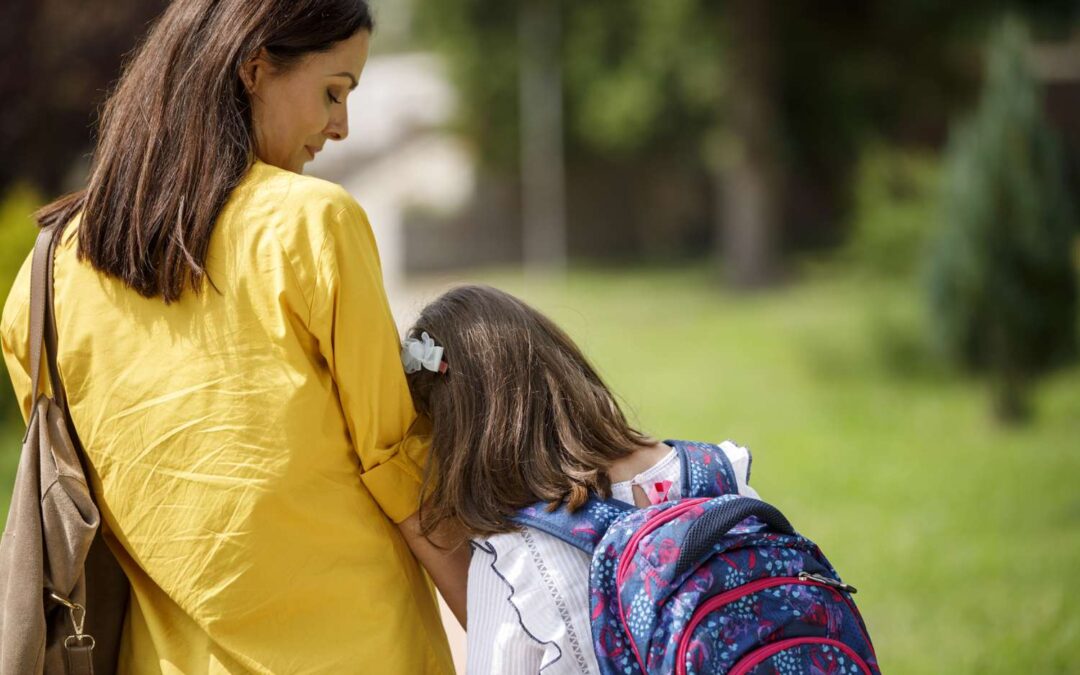
Understanding School Refusal
By Juliette Owens, MHC, Originally published in Anton Media
As summer winds down, families face the challenge of reorienting children back into school routines. For many, this period involves the usual protests and complaints, as children resist returning to their structured schedules and time away from home. However, some families face a more serious issue known as school refusal, making the back-to-school transition particularly taxing on the family as a whole.
What is School Refusal?
School refusal, also referred to as school avoidance, refers to any kind of significant absenteeism accompanied by severe emotional distress. While not a formal diagnosis, it is a symptom associated with other mental health conditions, such as anxiety, depression, and post-traumatic stress disorder.
Children exhibiting school refusal may demonstrate avoidance behaviors in various ways, such as lateness and refusing to get out of bed, or leaving school early and acting out during class due to the more deeply rooted stressors. Once a child discovers an effective method of avoidance, it can escalate into a more persistent issue.
Distress associated with attending school can manifest in different ways, varying from child to child. Some may report physical symptoms of headaches or stomach aches, increased depression, anxiety, or aggression, and a resistance to getting ready for school.
School Refusal vs. Truancy
It can be challenging for parents to distinguish between school refusal and truancy, as both involve a child missing school. However, the underlying motivations and emotional responses are notably different, and understanding these differences is essential for providing appropriate support.
Truancy is often associated with older teenagers and is typically driven by external factors such as boredom, rebellion, or the influence of peers. In these cases, the avoidance of school is not due to emotional struggles, but a desire to seek out more enjoyable activities. Though truancy can sometimes be a form of acting out or asserting independence, it lacks the severe emotional distress seen in school refusal.
Unlike truancy, school avoidance is often rooted in significant mental health concerns that require professional attention. A child experiencing school refusal isn’t avoiding school for the sake of fun or rebellion; instead, they are overwhelmed by fear or discomfort at the thought of attending school. For these children, school is a source of distress that they feel unable to cope with, leading to a strong emotional and physical reaction.
What Parents Can Do
It’s important to practice active listening in order to understand their reasons for school avoidance. School can be intimidating due to a child’s fears of bullying, social isolation, public speaking, or failure. Recognizing that your child is not making their situation harder on purpose is important and allows your family to productively help as a unit.
Creating a comprehensive support system is the key to helping your child overcome the underlying issue of school refusal. Work with your child’s school to develop a plan that addresses their anxiety and facilitates school attendance. An outpatient mental health center, such as North Shore Child & Family Guidance Center, can address the underlying issues while advocating for accommodations at school to make the environment more manageable.
Know that your family is not alone. School refusal is a growing challenge, with rates rising by 5% partly due to the disruptions caused by the Covid-19 pandemic in which kids missed out on vital socialization, creating higher levels of anxiety when faced with large groups of their peers. However, with understanding, support, and the right resources, your family can navigate this difficult period and help your child successfully reenter the school environment.
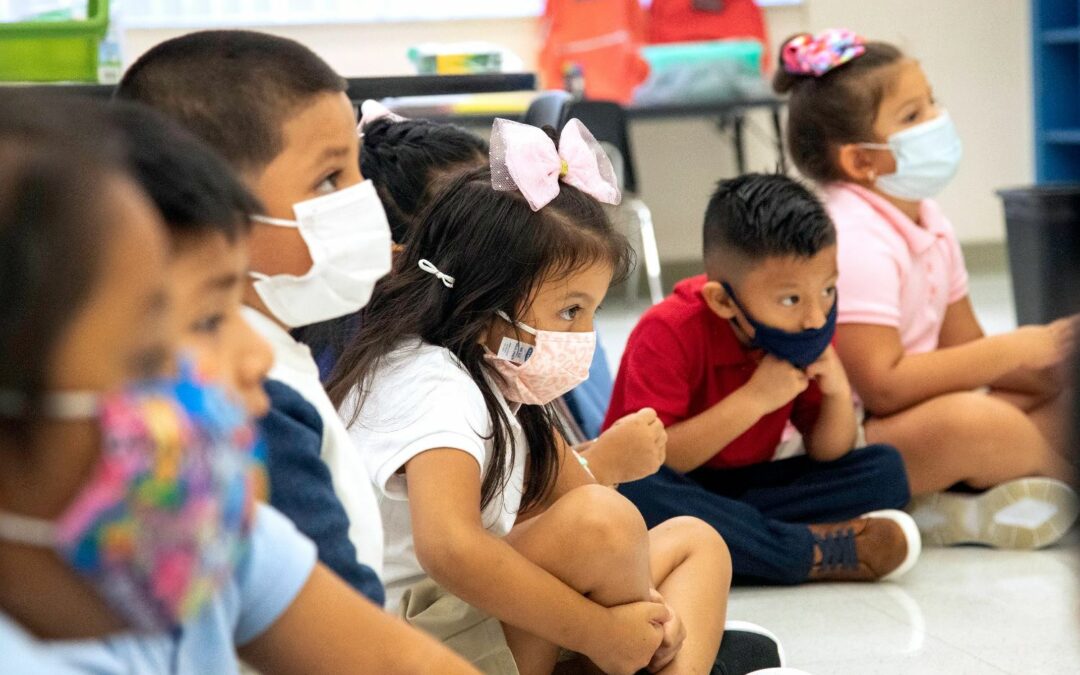
Younger students are developmentally behind, educators say, and they’re blaming the pandemic
By Craig Schneider, Published in Newsday, August 20, 2024
Roosevelt kindergarten teacher Margarita Acevedo said she’ll be starting the new school year with excitement, anticipation — and concern.
The teacher said that since children returned from the pandemic in fall 2021, some have lacked basic abilities, including how to handle pencils and crayons, as well as social skills such as getting along with others, taking turns and listening to one another.
“I feel like I’m starting off the year needing to do urgent interventions,” said Acevedo, who teaches at Ulysses Byas Elementary School.
She is hardly alone in such worries. Long Island educators and child experts say some of the youngest students — who were babies, toddlers and in prekindergarten when COVID reached the United States in 2019 — are struggling with relating to other students, throwing tantrums in class and not wanting to go to school.
WHAT TO KNOW
- Some of Long Island’s youngest public school students — who were babies, toddlers and in prekindergarten during the COVID pandemic — are struggling with relating to other students, throwing tantrums in class and not wanting to go to school.
- These students, now in kindergarten through third grade, missed important social interactions with their peers and others during the year or more of lockdowns and remote learning.
- Island educators say they are optimistic the children can catch up, given the school-based interventions and kids’ natural resiliency.
“We’re seeing an increase in these children with social deficits — navigating a social setting, navigating conflict and sharing things,” said Antonio Santana, superintendent of the South Country school district in Suffolk County. “More young kids need counseling. … It’s enough that it’s notice.”
The pandemic impacted students across all ages, setting many back academically and developmentally. Many were largely left at home to their own devices without much supervision or time with friends. Now, educators are seeing the effects it had on younger children.
These students, now in kindergarten through third grade, missed important social interactions with peers during the year or more of lockdowns, educators say. They lost out on structured learning when day care centers and preschool programs shut down in March 2020, educators and local child therapists said.
“We have noticed that many students entering kindergarten are not at the developmental and academic level we would typically expect,” said Shawn Wightman, superintendent of the Roosevelt school system. “Issues such as difficulties in fine motor skills, limited verbal communication, and challenges in emotional regulation have become more pronounced.”
Nakia Wolfe, a math intervention instructor in the Amityville district, taught grades 3-5 after the pandemic. He said he saw the difference as soon as the children came into class.
“Especially in terms of stamina, their ability to focus,” Wolfe said. “There were more behavior issues, more fighting.”
Helping kids readjust academically was difficult enough when many students returned to classes full time in 2021, he said. But dealing with the added social and emotional difficulties “felt like you were climbing up a steep hill and now were pushing a boulder.”
Island educators say they’re addressing the challenges. Children’s mental health already had become a major concern before the pandemic, and COVID added to those worries. Educators have been using millions in federal aid to hire more school counselors and implement more interventions.
South Country added a counselor at the elementary level in the 2023-24 school year and is considering adding another for its youngest students, Santana said.
“We’re continuing our focus on character education, so we actually do look out for one another,” he said.
More younger children need counseling, said Antonio Santana, superintendent of the South Country school district. Credit: Alejandra Villa Loarca
Roosevelt spent about $200,000 to add a speech specialist and an occupational therapist during the pandemic to address the developmental delays in these students, Wightman said.
The district also has hired three additional social workers, at a cost of about $495,000, since the pandemic to ensure every building has social workers and counselors, he said.
Roosevelt also hired three reading specialists and three math specialists during the pandemic, at a cost of $625,000, to work with the students, he said.
In addition, Roosevelt’s after-school and summer tutoring programs have helped to close academic gaps, Wightman said, adding that these programs cost a total of about $1.2 million. Those costs cover a range of initiatives, including those that started in the summer of 2021 to target young learners with foundational literacy and math tutoring, he said.
The superintendent said assessments indicate a 14% increase in reading fluency among K-3 students since 2021.
In Port Jefferson, school officials said that at the elementary level, speech teachers and counselors are providing “push-in” services in which they come into a class to provide lessons in social skills and language skills, said Jodi Cahill, district director of special education.
“Many teachers are doing a social-emotional check-in at the start of a class, asking students, ‘Feel OK today?’ ” she said. “It’s become ingrained in a lot of our teachers.”
COVID money ending this school year
Worries persist, however.
COVID money is drying up this coming academic year. That and other budget cuts have forced some schools to cut back and even lay off some counselors and social workers, said Stacy Pellettieri, clinical director of Long Island Counseling, which has offices in East Meadow and Melville.
“Some schools don’t have the resources, and they’re overwhelmed,” said Pellettieri, who works with about 30 Island districts. “This is the worst possible time to get rid of school social workers.”
Wightman said Roosevelt is keenly aware of the financial challenges that will arise when COVID money runs dry. He said the district is pursuing additional grants and other funding to sustain the additional positions.
“However, if we are unable to secure the necessary funding, we will be faced with difficult decisions that could involve reductions in services and/or programs, leading to potential budget cuts and staffing reductions,” he said.
The majority of Island districts, including Roosevelt, begin school Sept. 3.
Over the past year, Amityville has let go of a half-dozen social workers, leaving the district with about five, Wolfe said. The Sachem district also has laid off social workers in that period.
Following the pandemic, Riverhead added several social workers, psychologists and guidance counselors, interim Superintendent Cheryl Pedisich said. This past school year, due to budget constraints, the district reduced one psychologist, one social worker, and 0.4 guidance counselor, Pedisich said.
Pellettieri said she is seeing roughly a 30% to 40% increase in young students with emotional problems coming in for help. She said some teachers are reacting to these children acting out with punishments that don’t get to the heart of the problem.
“It’s really important not to shame them. … It’s almost like punishing a disability,” Pellettieri said.
Stacy Pellettieri, clinical director of Long Island Counseling, said she is seeing more young students with emotional problems coming in for help. Credit: Rick Kopstein
Teachers and parents need to help the child feel safe in school and catch up on the skills they need, she said. The child may need some counseling or to come to class in shorter periods until they become comfortable with the school setting.
Cahill said the Port Jefferson district is using “trauma-informed” responses to young students acting out, rather than just simple discipline.
“We’re looking at how do we work with a student, and understand what they’re going through, rather than just punishment,” she said.
Before the pandemic, it was not uncommon to see some nervous kids on the first day of school clinging to their parents outside. But now, for some kids, that separation anxiety has grown into refusing to go to school at all, Pellettieri said.
“Certain stages of development require experiences. … The pandemic interrupted those experiences and interactions,” Pellettieri said.
Playing with other kids teaches them to take turns, share and resolve conflicts, she said.
“Both parents had to work from home, and day cares and preschools were all closed, leaving parents no choice but to use the television or iPads to keep the kids busy,” she said.
Much depends on how parents themselves handled the pandemic, said Susan Cohen, clinical director of the Right From the Start program at the North Shore Child & Family Guidance Center in Manhasset. Even the youngest of children pick up on their parents’ stress, she said.
“The anxiety trickles down. They may not know about the pandemic, but they see that the anxiety is amped up,” Cohen said. At the same time, she said, some children are simply more prone to anxiety regardless of their parents’ behavior.
The stakes are high in helping these children, she said.
“It’s in second and third grade when learning disabilities often show up. That’s when children go from learning how to read to reading to know other subjects,” Cohen said. “If they’re not succeeding, they can fall behind. Their self-esteem takes a hit.”
That can lead to more absenteeism and resistance to even go to school, she said.
“They don’t want to be put in an environment where they’re not succeeding,” she said.
1.3M behind in reading, 1.7M in math
The issue stretches well beyond Long Island.
While studies show older students have shown encouraging signs of recovery in math and English, younger students who were not in a formal school setting when the pandemic hit have not fared as well, and some are falling further behind, according to a 2024 report by Curriculum Associates, a Massachusetts company that provides math and reading tests for students.
If applied nationally, the report suggests that 1.3 million second-graders are behind in reading, and 1.7 million are behind in math.
Addressing students in K-3, the report concluded, “We found these students are performing behind pre-pandemic levels, with limited signs of recovery.”
The report notes that the pandemic’s impact on older children has been studied extensively, but little research has focused on the youngest children.
“I think this data, based on millions of students across the nation, is a call to action across the education community,” said Kristen Huff, the company’s vice president of assessment and research, noting it could take years for these young learners to rebound.
However schools respond to this trend, it’s critical that they involve parents, educators and therapists.
In Roosevelt, school officials have made a point of working more closely with parents, Wightman said. The district launched family engagement programs in the fall of 2022, at a cost of $80,000, that include training sessions on positive parenting techniques and tools for managing stress, he said.
“Despite the challenges, we remain optimistic about our students’ ability to catch up,” he said. “Young children possess remarkable resilience and adaptability. . . . Many of our students are demonstrating significant improvements in literacy and numeracy skills, and we are witnessing enhanced social interactions.”
Acevedo, the Roosevelt kindergarten teacher, said she’s heading into the school year with more hope than worry. She’s been focusing on positive reinforcement with the kids.
“When I see a child crawling around on the floor, I look at the child who’s behaving and say, ‘I love the way you’re sitting in your seat,’ ” she said. “The child on the floor sees the praise, and they’re going to want that praise.”
TIPS FOR PARENTS
Susan Cohen, clinical director of the Right From the Start program at North Shore Child & Family Guidance, offers these tips to parents for helping children with emotional problems:
- Be open to listening to the child.
- Help the child express their feelings.
- Try not to project your own anxiety onto the child.
- Don’t be afraid to ask for help.
- The child needs to understand there are consequences for their actions, but also work on understanding what’s behind the behavior and work on better ways to handle it.
- Always try to communicate with the child’s school.
Click to read the article, Younger students are developmentally behind, educators say, and they’re blaming the pandemic – Newsday
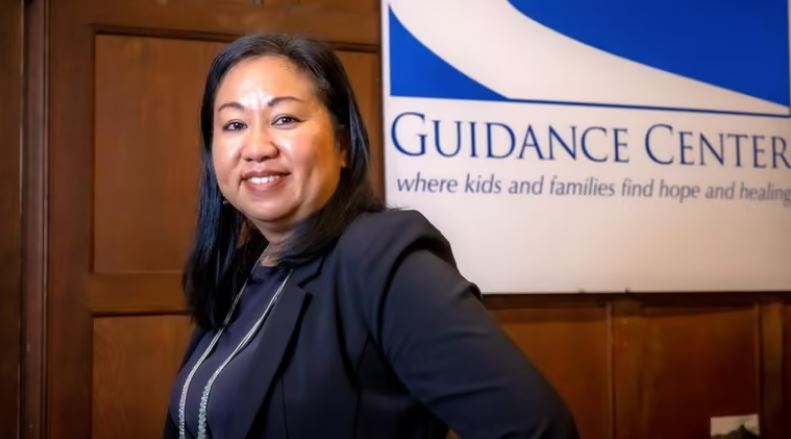
Mental health among nation’s teens takes upward turn, but challenges remain, study says
By Bart Jones, Published in Newsday, August 11, 2024
The mental health of teenagers improved somewhat as the COVID-19 pandemic eased, a new federal study says, though experts on Long Island said it remains a major problem, fueled in part by addiction to cellphones and social media.
The number of adolescents reporting persistent sadness or hopelessness dropped slightly between 2021 and 2023, from 42% to 40%, the Centers for Disease Control and Prevention said in a report released last week. For girls, the percentage dropped from 57% to 53%, while the number of girls who seriously considered suicide fell from 30% to 27%.
Mental health experts on Long Island said that while those numbers may be cause for limited optimism, they underscored that depression, anxiety and other issues remain widespread among teenagers.
“Even though there are some improvements in some of the mental health markers among youth, it is important to note how dramatic the continued mental health crisis is,” said Dr. Victor Fornari, the vice chair of child and adolescent psychiatry for Northwell Health.
He noted that four out of every 10 teenagers reported continuous sadness or hopelessness in 2023, meaning they felt so despondent for at least two weeks that they stopped doing their usual activities. About 20% seriously considered suicide, 16% came up with a suicide plan, and 9% attempted suicide, according to the report.
And while the number of teens reporting persistent sadness or hopelessness fell to 40% in 2023, a decade earlier it was 30%.
Dr. Adria Gerber, a licensed clinical psychologist at Stony Brook Medicine, said that “although there has been some improvement … the numbers are daunting.”
The report did not include figures on suicides among teenagers, but according to the CDC, suicide is now the second-leading cause of death after unintentional injury among people ages 10 to 34 in the United States.
Guarded optimism about new numbers
CDC officials said they saw reasons for hope with the latest report.
“One of our main priorities at [the] CDC is improving Americans’ mental health,” Dr. Debra Houry, the CDC’s chief medical officer and deputy director for program and science, said in a statement. The report shows “improvements to a number of metrics that measure young people’s mental well-being — progress we can build on. However, this work is far from complete.”
Among minority teenagers, the report found some improvement also.
The number of Hispanics who felt persistently sad or hopeless fell from 46% to 42%. Hispanic students who seriously considered attempting suicide dropped from 22% to 18%, while those who made a suicide plan fell from 19% to 16%.
Among Black students, the amount who attempted suicide fell from 14% to 10%, while those injured in a suicide attempt fell from 4% to 2%.
For LGBT+ students, the study found troubling trends: In 2023, nearly three in 10 were bullied at school, and two in 10 attempted suicide.
Some local experts attributed the small improvements to the country emerging from the height of the COVID-19 pandemic and returning to some normalcy. The CDC study was based on data from the 2021 and 2023 national Youth Risk Behavior Survey. The pandemic erupted in the United States in March 2020.
“Some of it might be coming out on the other side of the pandemic,” Fornari said. “We know that the COVID pandemic demonstrated a dramatic increase in mental health concerns among youth” as they had to stay home for months and engage in remote learning.
Christopher Coluccio, of Blue Point, whose 14-year-old son, also named Christopher, died by suicide in 2021, agreed.
“I have a concern that, as much as it’s a good number, that some of it is just falling off from how people were in COVID and that we’re just getting back to the real numbers,” said Coluccio, who now runs a foundation aimed at combating suicide.
Others said the improvements might be due to more people seeking mental health services as the stigma surrounding the issue slowly dissipates.
“The one good thing about COVID is that we really laser-focused on people’s mental health, because we saw it deteriorating so quickly,” said Jeffrey Friedman, CEO of the nonprofit CN Guidance & Counseling Services in Hicksville.
“We’re seeing more people access services, and when more people access services and enter treatment, we do see a decrease in people experiencing sadness or hopelessness and an increase in their overall mental health,” he said.
His agency has seen a 20% increase in young people receiving mental health assistance since 2022, he said.
Gerber, who works at the Outpatient Child and Adolescent Psychiatry Department of Stony Brook University Hospital, said that clinic was overwhelmed with requests for help during the early years of the pandemic, with a 200% increase between 2020 and 2022. Social isolation due to the pandemic was causing widespread depression, anxiety and other issues, she said.
“We were getting this huge increase in call volume that we weren’t able to manage,” she said.
Demand for service is still high, she said, but has dropped to a more manageable level.
Access to mental health counseling has improved partly because of another consequence of the pandemic — “telehealth,” or counseling sessions held over Zoom or other programs. Now teenagers don’t have to rely on their parents to drive them to a therapist’s office, she said.
Not all local experts think the mental health situation of teenagers has improved.
“Rates of depression and anxiety are pervasive, particularly among Hispanic girls,” said Kathy Rivera, executive director and CEO of North Shore Child & Family Guidance Center in Nassau County. Her agency has “not seen a reduction in the overall need for our vital children’s mental health programs.”
Claudia Boyle, CEO of the Hispanic Counseling Center in Hempstead and Bay Shore, said that while the overall picture for Hispanics nationwide may have improved, “That’s not the case … in Nassau and in Suffolk. I don’t feel that it’s going down.”
Her agency is receiving a growing number of calls for help, with self-harm, hopelessness, thoughts of suicide and other problems common. Even this summer — a season when requests typically drop — the number of calls has remained steady.
“The kids have very few coping skills,” she said. “It’s just a different world.”
Social media and mental health
Many experts attribute some of the ongoing mental health problems to the emergence over the last decade of ubiquitous cellphones and social media.
U.S. Surgeon General Dr. Vivek Murthy in 2023 issued an extraordinary public warning that social media poses a threat to the mental health of young people. In June, he called for warning labels on the platforms, like those mandated on cigarette boxes. Adolescents who spend more than three hours a day on social media face double the risk of anxiety and depression symptoms, he said.
Cellphones, said Northwell’s Fornari, are central to the mental health crisis “because we are holding a handheld computer that has access to the internet and social media. Youth are targeted and bullied on social media in ways that we can’t even imagine. It’s not just being called names in the cafeteria or in the hallway. It really can be quite toxic and quite hurtful.”
Rivera agreed, and said many teens are even turning to the internet for inappropriate mental health assistance.
“The dangers of social media have only intensified over time,” she said. “Many youths, particularly teens, are turning to online platforms for self-diagnosis and treatment or use unregulated mental health apps to fill their need for social connectedness. While these may offer temporary relief, they fail to address the underlying issues, which may exacerbate at a later time.”
Still, some experts have hope that the improvement in the numbers cited by the CDC will continue. They say the growing number of famous people speaking out about their mental health struggles can help end the stigma around the topic.
Simone Biles, considered the greatest gymnast of all time, has spoken openly of her mental health struggles — and how therapy helped her. After withdrawing from five event finals at the 2021 Tokyo Olympics, she came back to this summer’s games in Paris — and won three gold medals and one silver.
“She’s phenomenal,” Gerber said. “It’s just unbelievable to see the turnaround and to see her performance. I think she brought to the stage just this understanding that she’s human. She’s shown that if you admit what is going on, there is a community out there to help you. They can help you become your best self.”
Link to article, Mental health among nation’s teens takes upward turn, but challenges remain, study says – Newsday
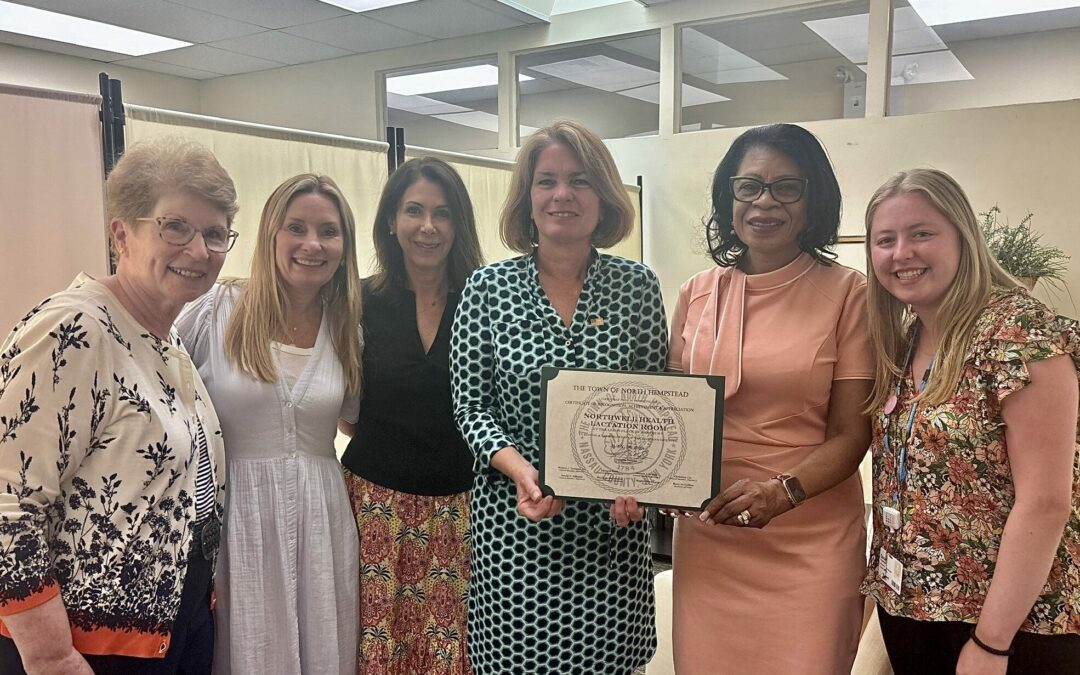
The Guidance Center Opens Lactation Room Supporting New Mothers
Westbury, NY, July 22, 2024 — North Shore Child & Family Guidance Center has opened a lactation room at the Leeds Place— Serving Young People in Westbury to support the needs of breastfeeding mothers.
The Leeds Place is home to a variety of services offered by the Guidance Center, notably Good Beginnings for Babies, a program that provides support, counseling, advocacy, and education for pregnant and parenting teens. The new lactation facility will give all clients and staff members a comfortable area to express milk when nursing.
“Our lactation room provides access to a safe and welcoming space for nursing mothers to pump milk, breastfeed or chestfeed their baby,” says Dr. Nellie Taylor-Walthrust, Director of the Leeds Place. “This contributes to the bonding and well-being of both the child and mother, allowing her to care for the health of her baby without feeling shamed or judged.”
The lactation room was made possible due to a wonderful partnership with the Northwell Health Breastfeeding, Resiliency, Engagement and Empowerment (BFREE) team.
“We are so excited to have partnered with the Guidance Center to support parents by creating a pleasant and private lactation-friendly space for their community and employees,” said Pamela Reichert-Anderson, Program Manager of the BFREE team. “Our team was able to provide tools and resources for lactation support, as well as educate employers about the value of supporting lactation in the workplace. By increasing awareness about the benefits of breastfeeding and chestfeeding, we hope to make communities a more accepting place for parents by normalizing human milk feeding.”
Town of North Hempstead Supervisor Jennifer DeSena attended the opening, showing her support for this important initiative. “Nursing helps a mother bond with and nourish her baby at no cost. Thanks to this innovative collaboration, a nursing mother can find privacy in a beautiful, quiet room while her family receives vital mental health or substance misuse counseling,” she said. “That’s possible because the Guidance Center and Northwell Health are dedicated to improving access and support for our families.
“I’m especially thankful to Dr. Nellie Taylor-Walthrust for her 35 years of care at the Guidance Center, North Hempstead’s Substance Misuse Advisory Committee and our Yes We Can Center,” continued Supervisor DeSena. “Whether it’s diagnosing and treating maternal depression, supporting grandparents raising children, or assisting nursing mothers, the Guidance Center always leads the way.”
Click to read in: Anton Media, The Island 360, and LIBN

Kathy Rivera: Long Island Business News Most Dynamic Women Leaders
Kathy Rivera serves as executive director and CEO for North Shore Child & Family Guidance Center, a children’s mental health organization that focuses on bringing hope and healing to young people struggling with a wide range of emotional challenges.
Rivera, who took on the leadership role at the guidance center in June 2021, has been successfully managing the operations of the agency during the unprecedented mental health crisis that was brought on by the pandemic. Over the last few years, there has been an epidemic of anxiety, depression and fear among children and teens.
Rivera, who earned her Bachelor of Arts from Hunter College of the City University of New York and her Master of Social Work from the Hunter College School of Social Work, has 22 years of experience as a social worker, along with expertise in management. Her deep knowledge of clinical treatment, mental health policy and agency operations provides profound insights and perspective on the ever-changing landscape of mental health.
At North Shore Child & Family Guidance Center, Rivera leads a team of highly trained psychiatrists, psychologists, social workers, alcoholism and substance abuse counselors, mental health counselors, vocational rehabilitation counselors and family advocates, all with expertise and experience in working with children and families. The professionals develop specialized treatment plans for children and their families and employ a team approach to ensure that each child receives appropriate care and is monitored for risk and danger. The guidance center is based in Roslyn Heights, with additional locations in Manhasset and Westbury.

CBS News: Spring Luncheon Feature with Cindy Hsu
On April 24, 2024, North Shore Child & Family Guidance Center welcomed Cindy Hsu as the guest speaker at our sold-out Spring Luncheon. On her morning show, she spoke about the event and shared our mission with her audience.

Helping Your Child Through Unemployment
By Kathy Rivera
Transitioning from school to the job hunt is a daunting yet pivotal phase in the life of every young adult. As your child embarks upon this important journey, they may feel a mixture of excitement, fear, and worry, and not without reason. Job seekers today face more uncertainty than ever, with the latest unemployment rate for young high school graduates falling at 7.9 percent. Recent college graduates fare slightly better with an unemployment rate of 4.8 percent, though this number is nearly double that of all workers with a college degree, according to the Federal Reserve Bank of New York.
As parents, it can be difficult to balance positive reinforcement while managing expectations. Unemployment affects not only the job seeker, but the family unit as a whole, hindering the independence you want for your child. The psychological effects of rejection are amplified the longer the job hunt continues, so it is vital to understand what you can do to best support your child throughout this phase of their life.
Be patient
It’s important for parents to understand that the job market is vastly different today than it was when they were young jobseekers. Gone are the days of walking into a business and handing the owner a resume with the expectation of receiving an interview later that week. Today, candidates can expect to send out dozens, if not hundreds of applications with little to show for it. According to Pew Research Center, 39% of Millennials have a Bachelor’s degree or higher, making them the most educated generation to date, and that number continues to climb with Generation Z. These impressive numbers have created a highly competitive job market, resulting in more college graduates finding themselves in roles that don’t use their degree.
Provide encouragement
After submitting countless applications with nothing to show for it, it’s understandable for your child to feel demoralized or even hopeless. However, it is crucial to motivate your child to continue their search and build upon their skill sets, tailor their resumes to specific jobs, and network with professionals in their field. Remind them that they aren’t alone in feeling discouraged, but that there is a job waiting for them.
Establish healthy coping mechanisms
Constant rejection can be difficult to deal with. Let your child know that it’s okay to experience feelings of sadness, anxiety, and frustration when unemployed, but they shouldn’t let that consume them. Encourage them to take breaks from the application process to relax with friends and loved ones, enjoy their hobbies, and take time away from the computer. Stress-management techniques such as breathing exercises, meditation, and mindfulness will help them through overwhelming feelings during the hunt. Self care is crucial in avoiding burnout when applying for jobs and maintaining strong mental health.
Trust that they know what is best
It makes sense to want updates on how the job search is going, especially if your child is living at home. Despite this, try to refrain from asking for updates too frequently, as this can create further pressure for your child. If they have any promising leads, trust that you will be the first to know. Today’s young adults have a better understanding of the current job market than you may, so allow them to explore their options, make mistakes, and grow on their own.
By adopting these approaches, we can not only help our children overcome the burden of unemployment but help them to foster the independence and resilience needed to thrive in a professional landscape, all while maintaining their mental well-being.
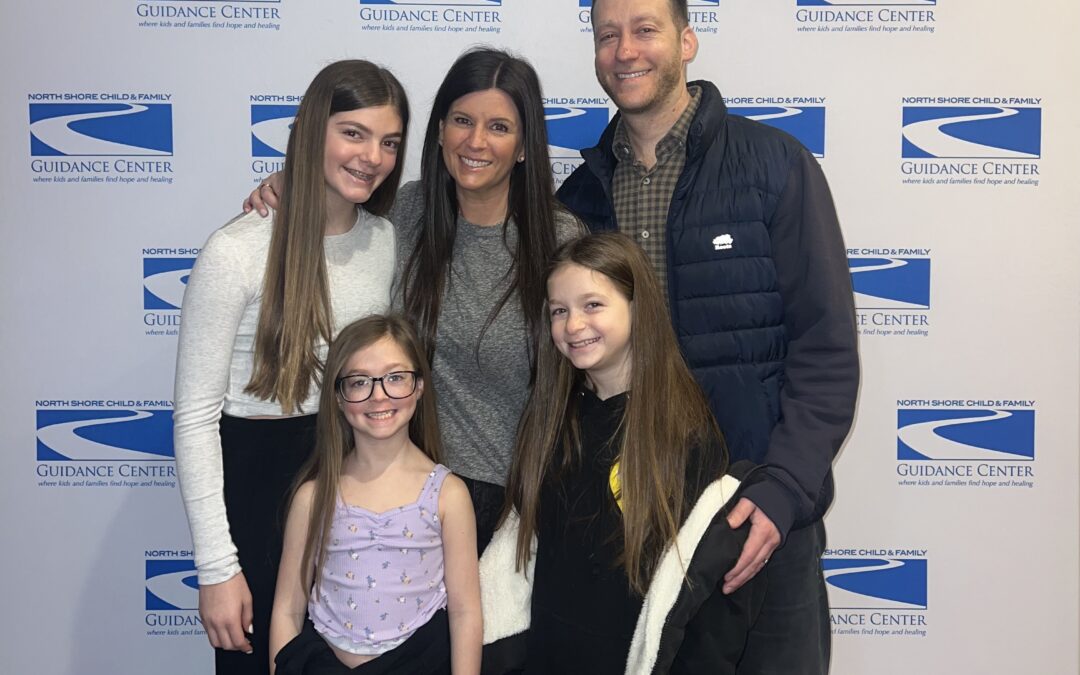
Morning Movies with the Guidance Center
“Morning Movies with the Guidance Center,” North Shore Child & Family Guidance Center’s annual family-friendly fundraiser, brought the community together for an enjoyable morning of popcorn, bagels, drinks, and a choice of three movies: Barbie, Kung Fu Panda 4, and You Are So Not Invited to My Bat Mitzvah.
“We all know that children and teens are experiencing issues like depression, anxiety, and even suicidal thinking more than ever before, and that’s why I’m proud to support the Guidance Center’s lifesaving work,” said Jeffrey Greenblatt, one of the event’s co-chairs and a Guidance Center Board Member. “Plus, my family had a wonderful morning, and I get to set an example for my three daughters. It’s important to me that my children understand the value of serving your community.”
Co-chair Joshua Brookstein, who attended the event with his daughter, said, “It’s always a pleasure to support the mission of the Guidance Center. Ensuring the well-being of our children is crucial, and I’m happy to contribute to efforts in raising funds and awareness for mental health.”
Kathy Rivera, the Guidance Center’s Executive Director/CEO, thanked everyone who came out to support the event, as well as the event’s sponsors: Liberty Utilities, Sahn Ward, Cullen & Dykman LLP, Harris Beach, the Greenblatt Family, and the Slade Family, along with Manhasset Cinemas for generously hosting the event.
“It was an absolute delight spending time with so many children and families to raise awareness about our work while also having fun!” said Rivera.
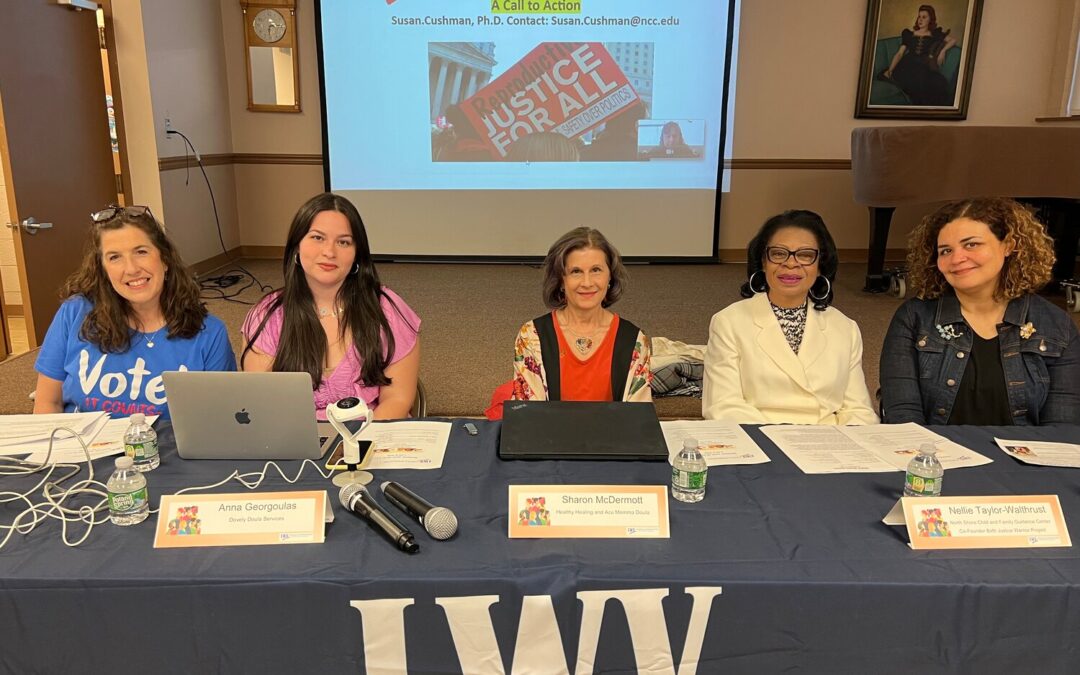
Reproductive rights and equality for all
The Freeport Memorial Library hosted a detailed, lively panel discussion last Friday, connecting women’s reproductive rights to the New York State Equal Rights Amendment.
The program was organized by the League of Women Voters of Central Nassau.
On Nov. 5, voters will have an opportunity to enshrine a revised version of the state amendment in law, by approving it in the voting booth.
New York currently has an Equal Rights Amendment that prohibits discrimination based on race, color, creed or religion. The revised amendment adds more protected categories: ethnicity, national origin, age, disability and sex.
The category of sex is broken down into “sexual orientation, gender identity, gender expression, pregnancy, pregnancy outcomes, and reproductive health care and autonomy.”
Abortion access may be the issue that most readily comes to mind under the heading “reproductive health care,” but it is not the only concern for women.
Nondiscriminatory treatment before, during and after pregnancy is not uniformly protected throughout the state, nor is government support for children’s health consistent statewide, the panelists said.
Susan Cushman, an English professor at Nassau Community College, defined “reproductive justice” by referring to Loretta Ross, a professor of women and gender studies at Smith College.
Ross named three tenets of reproductive justice: the right not to have a child, which involves abortion access; the right to have as many childrenas a woman may want; and the right to raise children in a healthy environment.
“We need a state constitution that protects your rights and my rights to have the bodily care that we deserve as a basic right,” Cushman said. She referenced a lawsuit, Zurawski v. State of Texas, in which 23 women are suing Texas because they could not obtain abortions that their doctors deemed medically necessary.
Anna Georgoulas, founder of Dovely Doula Services, explained that doulas — non-medical professionals who provide emotional, physical and informational support to new and expectant parents — help fight the high infant and maternal mortality rate in the United States. They help clients create birth plans and train women to advocate for themselves throughout pregnancy, birth and postpartum life. Doulas are “an information hub” for women, Georgoulas said.
Sharon McDermott, a doula whose business is called Healthy Healing, said that New York has instituted ways for birth doula providers to be paid through Medicaid, which increases equitable access for women lacking insurance.
Martine Hackett, an associate professor of health at Hofstra University, related the history of Birth Justice Warriors, which she co-founded with Dr. Nellie Taylor-Walthrust in 2018. Hempstead attorney Frederick K. Brewington lent support by framing the excessive mortality rates among women and infants of color in Nassau County as a civil rights issue.
Pre-existing conditions, like hypertension, are common causes of maternal death, Hackett explained, but a leading cause of infant mortality is stress on the mother during pregnancy.
“We do peer-to-peer education,” Hackett said. “We work with other clinicians, and partner with major health organizations such as Northwell Health to increase health care access.”
“What is happening in Nassau County drove us to action,” Taylor-Walthrust said. “Roosevelt has the highest numbers for infant mortality and low birthweight babies, with Hempstead being number 2 and number 3 being Westbury. We make sure that mother and baby have as healthy an environment as they can, and we teach them that they have a right to ask questions. We educate the hospital doctors and nurses and social workers to treat the mothers with respect.”
Birth Justice Workers has instigated change at the local, state and federal levels. “Women’s maternal health is now being recognized throughout New York state, and in particular in Nassau County, because of the work that Martine and I would not give up on,” Taylor-Walthrust said.
Cushman closed the program by urging voter support for the state Equal Rights Amendment. “For the first time, we are putting reproductive health squarely in the broader framework of protecting all of our rights and freedoms,” she said. “Our coalition is made up of registered Democrats, registered Republicans and independent voters. This is a pan-partisan initiative.”
Deputy Town Supervisor Dorothy Goosby, a member of the League of Women Voters, visited the program and urged attendees to join the organization.
“We need women like you to be involved,” Goosby said, “because it’s the only way we’re going to get things done.
Photo: Panelists at the League of Women Voters of Central Nassau event, hosted by the Freeport Memorial Library last Friday, discussed women’s issues and the state Equal Rights Amendment. From left were Susan Cushman, Anna Georgoulas, Sharon McDermott, Dr. Nellie Taylor-Walthrust, a co-founder of the Birth Justice Warrior Project, and Martine Hackett, an associate professor of health at Hofstra University.
Photo Credit: Courtesy Reine Bethany
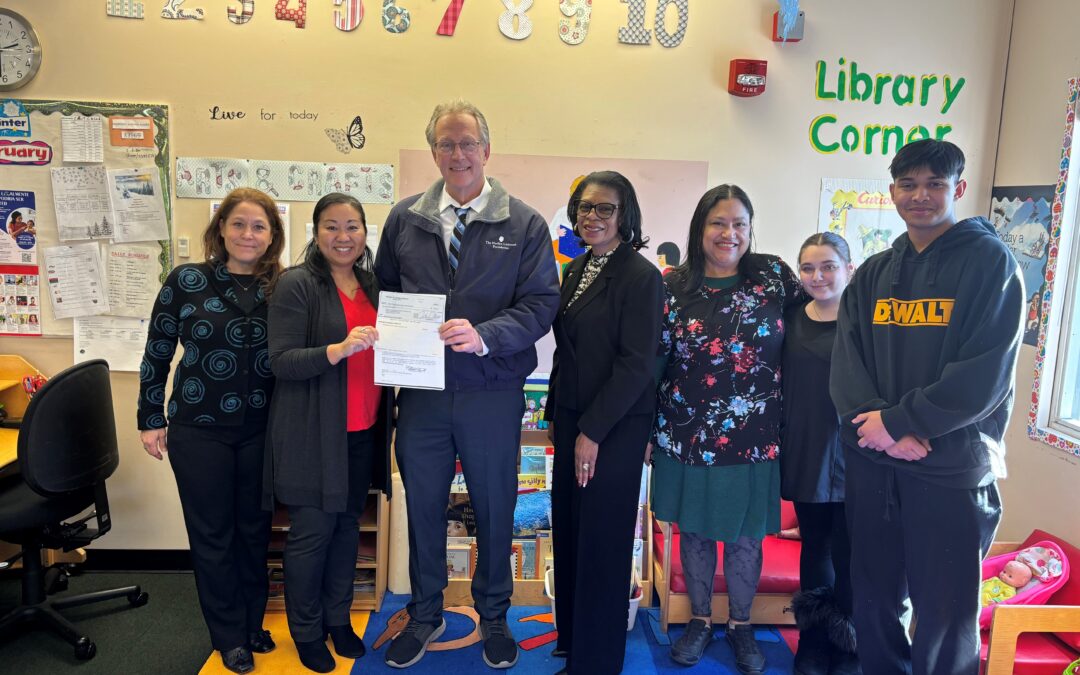
The Marilyn Lichtman Foundation Gives $10,000 Grant to Guidance Center
North Shore Child & Family Guidance Center, Long Island’s leading not-for-profit children’s mental health center, is honored to announce that The Marilyn Lichtman Foundation has donated $10,000 towards supporting the Children’s Center at Nassau County Family Court.
The Children’s Center at Nassau Family Court is a program of North Shore Child and Family Guidance Center that offers a place of respite for children whose families have business in court. More than a babysitting service, the Children’s Center is an early-learning environment that fosters developmental skills through age-appropriate play, activities, and free books for the children to take home. Every aspect of the Children’s Center is designed with kids in mind, allowing them to explore new things in a structured, professionally supervised way.
“Many of the organizations we support involve children in many different situations,” said Robert Brull, President of the Marilyn Lichtman Foundation. “As a former investigator, I’ve seen what trauma can fall upon children from court cases, especially cases involving divorce and/or child abuse. Giving a child the ability to feel safe and comfortable while parents or guardians go through the court’s justice system is a positive step in reducing emotional damage to the child.”
Dr. Nellie Taylor-Walthrust, Director of the Leeds Place — Serving Young People, expressed immense gratitude towards the Marilyn Lichtman Foundation’s generous donation. “Our goal at the Children’s Center is to keep kids out of the courtroom and provide a safe place for them to grow,” said Dr. Taylor-Walthrust. “The Center is free for any family with business at Nassau County Family Court, so this grant will allow us to continue and expand upon this important program. Thank you to Robert and the Marilyn Lichtman Foundation for caring about our children.”
The Marilyn Lichtman Foundation honors the legacy of Marilyn Lichtman through philanthropic contributions to those in need throughout our community, hoping to enhance the lives of future generations.
For more information on the Marilyn Lichtman Foundation, visit marilynlichtmanfoundation.org. To learn more about the Guidance Center, visit www.northshorechildguidance.org or call 516-626-1971.
Pictured: Lauren McGowan, Kathy Rivera, Robert Brull, Dr. Nellie Taylor-Walthrust, Monica Dolley, and volunteers Ashley Gentiluomo & Alex Breslin
Published in Anton Media, click to view, Blank Slate, click to view, and Long Island Business News, click to view.

International Day of Education at the Guidance Center
January 24, 2024, Manhasset – To celebrate International Day of Education, MTO Shahmaghsoudi School of Islamic Sufism rallied the community to donate art and early learning supplies for the children of North Shore Child & Family Guidance Center. Dozens of gift bags were donated and distributed to the young clients of the Guidance Center’s Manhasset location, the Marks Family Right from the Start Center 0-3+, providing an outlet for kids to use art and creativity as a way to strengthen their mental well-being.
“The donation represents our collective effort to come together and spread the message of peace, love, and hope,” said MTO volunteer Ellica Sedigh. “MTO Professor Nader Angha, the current Sufi Master, has said that “hope is a planted seed in fertile ground that bears fruit.” Through these gift bags we symbolize the act of planting seeds of hope for children facing mental health challenges.”
Dr. Sue Cohen, the Director of Clinical Services at the Marks Family Right from the Start Center 0-3+, shared that the gift bags were greatly appreciated by the Guidance Center’s clients and their parents. “The goodies in the bags align with the work that we do on finding appropriate activities to use as coping mechanisms and grounding skills,” she said.
Town of Hempstead Supervisor Jennifer DeSena, a longtime supporter of both North Shore Child & Family Guidance Center and MTO Shahmaghsoudi, stated “Mental health is something I have worked to promote and educate about for many years. MTO and the Guidance Center both share a devotion to mental health and finding balance in positive ways through serving and educating the community.”
About Us:
As the preeminent not-for-profit children’s mental health agency on Long Island, North Shore Child & Family Guidance Center is dedicated to restoring and strengthening the emotional well-being of children (from birth – age 24) and their families. Our highly trained staff of psychiatrists, psychologists, social workers, vocational rehabilitation counselors and other mental health professionals lead the way in diagnosis, treatment, prevention, training, parent education, research, and advocacy. The Guidance Center helps children and families address issues such as depression and anxiety; developmental delays; bullying; teen pregnancy; sexual abuse; teen drug and alcohol abuse; and family crises stemming from illness, death, trauma, and divorce. For nearly 70 years, the Guidance Center has been a place of hope and healing, providing innovative and compassionate treatment to all who enter our doors, regardless of their ability to pay. For more information about the Guidance Center, visit www.northshorechildguidance.org or call (516) 626-1971.

Making a Splash at The Guidance Center
Published in Blank Slate Media on January 24th, 2024
The walls of North Shore Child and Family Guidance Center look a lot brighter thanks to the wonderful murals donated by Splashes of Hope. The nonprofit organization, dedicated to transforming environments “from clinical to colorful,” paid a visit to The
Leed’s Place — Serving Young People on December 20th with the intention of bringing warmth and cheer to the space. The Leed’s Place is home to a variety of specialized services benefiting the youth of Nassau County, including programs for pregnant & parenting teens and adolescents struggling with alcohol & substance dependency. Clients are now greeted by an expansive mural depicting “A Sea of Possibilities,” instilling hope in all who walk through the doors.
“Splashes of Hope has transformed our waiting areas into a welcoming, eye-catching, and positive environment for our patients and staff,” says Dr. Nellie Taylor-Walthrust, Director of The Leed’s Place. “It’s exciting to see children and their families closely examining the custom mural, pointing out the various details they find interesting and exciting. The art has brought an exciting new life to The Leeds Place.”
“After meeting the staff at North Shore Child & Family Guidance Center and learning about their mission, we measured and assessed The Leeds Place and couldn’t wait to make a ‘splash’,” said Heather J. Buggee, Founder and CEO of Splashes of Hope. “To serve as a reflection of the positive energy, care and concern this staff exemplifies, Splashes of Hope created uplifting, thoughtful murals and focal points for families who enter North Shore Child & Family Guidance Center. We are grateful to have this important resource for children and families in crisis. Our intention is for the artwork to transform the space into a welcoming and uplifting environment.”
Laurence W. Levine Foundation, a longtime supporter of Splashes of Hope’s work, made the beautification of The Leed’s Place possible. “The Levine Foundation is well aware of the importance of mental health awareness and treatment for children and their families,” said Lesley Logue, a Director of the Levine Foundation. “Splashes of Hope transcends a once-dull space into a peaceful, calming backdrop to elicit a therapeutic response in a place like the Guidance Center. The designs, artistry and colors used can transform not only the walls, but the whole process for everyone who enters! Our hope is to continue supporting Heather and all of Splashes of Hope as they bring comfort to those who are facing difficult times, splashing away some of the darkness by bringing more color to their lives.”
Thank you so much to Laurence W. Levine Foundation and Splashes of Hope for making this special project a reality!
Photo: Lauren McGowan, Dr. Nellie Taylor-Walthrust, Jim Knapp, Kathy Rivera

Guidance Center’s 70th Anniversary Raises $230,000
Published in Port Washington News on November 15, 2023
It was a night to remember at North Shore Child & Family Guidance Center’s 70th Anniversary Celebration in 70s Style, held on October 26, 2023 at North Hempstead Country Club. The event raised over $230,000 to support the Guidance Center, Long Island’s premier nonprofit children’s mental health organization.
The evening’s music was provided by Peat Moss and the Fertilizers, who filled the air with a variety of disco and boogie hits from the 70s, staying true to the event’s theme and keeping guests on the dance floor throughout the night.
Carol Bottiglieri, the mother of a long-time Guidance Center client shared an emotional account of her son’s struggle with depression, anxiety, and substance use. “Without North Shore Child & Family Guidance Center, our family would be broken today,” she shared with the audience. “Because of the therapy and support given to us by the Guidance Center, we remain a strong, united family, continuing to help my son achieve a healthy, happy, independent life.” Carol’s story brought guests to tears and received a standing ovation.
Guidance Center Executive Director/CEO Kathy Rivera proudly honored the rich history of the organization she now leads, which spans seven decades. “I stand on the shoulders of giants and would not be speaking to you all tonight without their invaluable contributions.” she said of her predecessors. “The reason we have been able to bring hope and healing to the community for 70 years is thanks to them, and to all of you who support our mission.”
Rivera also thanked the night’s emcee, Crystal Cranmore of Channel 7 Eyewitness News, as well as the sponsors and underwriters of the event: the Klipper Family Foundation; Americana Manhasset, the Jane & Martin Schwartz Family Foundation; the Jack & Dorothy Kupferberg Family Foundation; Maureen & John Ferrari; Andrea & Michael Leeds; and WABC.
Guidance Center Board President Alexis Siegel acknowledged the sad tragedies occurring throughout the world and thanked the Guidance Center for helping members of the community receive the emotional support needed. “Though we can’t change the atrocities that are happening around us, we do have a say in how we choose to respond,” she said. “The Center is a lifeline to so many families struggling to find peace and a way forward through the darkness.”
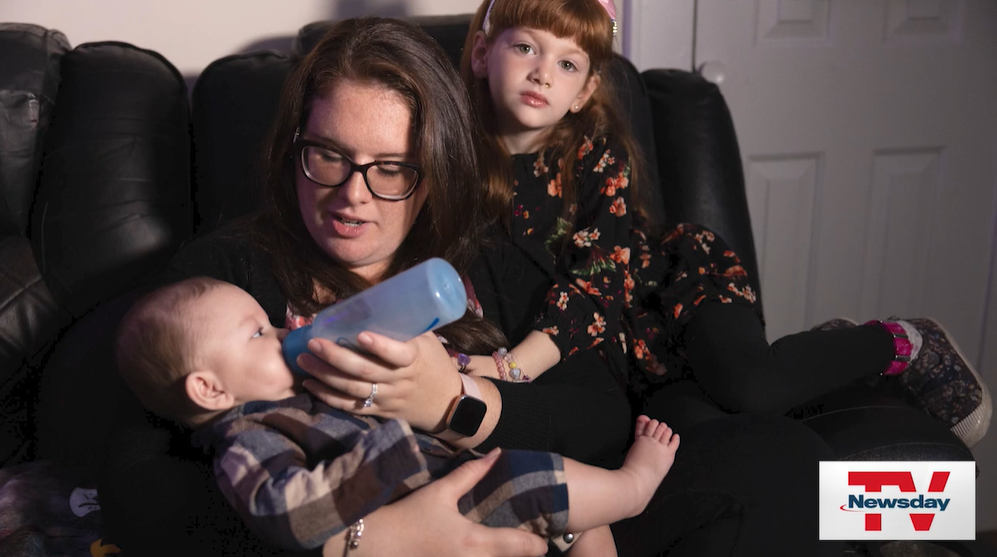
Pregnancy, postpartum can be key times for mental health challenges
By Tiffany Cusaac-Smith, Published in Newsday, October 21, 2023
After giving birth to her son in March, Justine Hofsiss lay in the fetal position on a couch at her Franklin Square home unable to function.
Ringing in her ears, heart palpitations, sweating, shaking — those were among the symptoms she shared with her best friend, a nurse, who tried to provide remedies until realizing the salve might be mental health treatment.
“It was a very scary, very overwhelming time in my life, where I felt like I had no control of my body whatsoever,” said the mother of two who had already eschewed driving because of her emotions.
With a referral from the friend, Hofsiss in April turned to the North Shore Child & Family Guidance Center, crying in an intake call but finally hearing a voice to help make sense of her feelings after a traumatic birth and pregnancy.
“I hung up the phone and just cried because I’m like, ‘OK, this isn’t going to be forever. I’m going to be OK. I’m gonna get help,’” she said.
The North Shore Child & Family Guidance Center’s maternal health and wellness program is among a handful of places on Long Island working to treat pregnant people and those who have recently given birth for mental health issues such as anxiety or perinatal depression, which is common but can impact a woman’s ability to function — and even be life-threatening.
Roughly one in eight women in the United States said they experienced symptoms of postpartum depression since the birth of their babies, according to the Centers for Disease Control and Prevention.
Mental health conditions are the leading cause of pregnancy-related deaths, the CDC said, citing data from 2017 to 2019. That figure includes suicides and overdoses related to substance use.
In New York, mental health issues made up 15% of pregnancy-related deaths in 2018, or the third-leading cause, the state Department of Health said.
The overall number of women in the state who asked for help for depression after giving birth has steadily increased from 2017 to 2020, moving from 7.7% to 11.3%, the Department of Health said.
Meanwhile, the number of women who said a health care provider had asked them about depression symptoms at a postpartum visit moved from 76.1% in 2016 to 82.4% in 2020, the DOH said.
Childbearing is often perceived as a joyous moment, but it is also a moment of immense physical and emotional change that can leave people in anguish, experts say.
“The expectation is this should be such a wonderful point in your life,” said Dr. Sue Cohen, clinical psychologist and a clinical director at the center.
She later added: “Everyone, maybe their parents say to them, ‘Oh, you should feel so grateful you have a healthy child,’ but they’re not feeling it.”
Barriers to getting mental health care
And while in the throes of mental health ailments, many women also face barriers to getting care, including the stigma of such illness and long waits to see providers, said Dr. Brittain Mahaffey, a licensed clinical psychologist and director of the Dialectical Behavior Therapy at Stony Brook Medicine.
In addition, some psychiatrists will not prescribe medication to people who are pregnant or breastfeeding out of fear of harming the child. Other times, women will forgo their prescriptions while pregnant.
The North Shore Child & Family Guidance Center maternal program seeks to be a bridge for women seeking care, taking referrals from OB/GYNs, pediatricians and word-of-mouth.
They then do a screening call to ensure the women don’t need to be taken to a hospital. Within a week of that call, the parent is seen.
“We treat it like an emergency because these moms are at risk, and the babies could be at risk,” said Cohen, later noting: “We need to make sure everyone’s safe.”
Cohen said many of the program’s clients have had a traumatic birthing experience. A depressive or anxious history is sometimes the case.
The patients go into individual therapy or with a partner. A staff psychiatrist works to provide care for women who are pregnant or have just given birth. Parents can bring their children if they come in for visits, as evidenced by the toys and children’s artwork in the offices.
The sessions usually take place over a year but can last longer.
“Some women just need a little support to get through this period and you know, are grateful that they’ve gotten this, and they can go back to their level of functioning,” Cohen said.
Anxiety after difficult delivery
While pregnant with her son, Hofsiss was hospitalized multiple times because her blood pressure spiked. During delivery, the baby’s heart rate dipped, and she was given oxygen.
After the birth, she stayed in the hospital for a week — away from her daughter, 5, and unable to adjust to everyday life.
“I had a full-blown anxiety attack because I was afraid that my blood pressure was not going to get better. It was constantly going to be high. I was never going to go home. We have this new baby now, we need to get adjusted. And my anxiety just got bigger and bigger.”
She reached out to the North Shore Child & Family Guidance Center, where she was diagnosed with postpartum depression and anxiety.
There, she met a therapist who gave her strategies to promote her care and mindfulness. One of the tools that she holds close is the idea of kintsugi. The Japanese technique mends broken pieces of pottery but still shows the seams, demonstrating both beauty, imperfections and endurance.
“It’s a different version of what you were, but it’s going to be a better version. And it’s OK that it’s different than what you were used to,” said Hofsiss, who is also on medication.
Mahaffey said the stress that mothers experience before they become a parent is one of the most important predictors of depression and anxiety.
Young parents may have more stress because of financial difficulties and mothers who have had a traumatic pregnancy could be also more prone to anxiety.
“I want people to know that mental health problems don’t just magically start in the postpartum; it usually starts during pregnancy and then worsens into the postpartum,” she said.
Depression deepens during pregnancy
After struggling to get pregnant, Dhipinder Walia said she felt “embarrassed” when depression crept back up while she was pregnant.
“I always just sort of felt like something was wrong with me because it is something I was asking for. So why, why couldn’t I just figure it out?”
Walia, 35, of Lynbrook, eventually told her OB/GYN that she was depressed, only for her to be given providers who had a long waiting list.
Meanwhile, she said, her feelings of depression were stronger and deeper than when she was a teen and in her 20s.
“Whereas before I just felt like I was unable to, like, find joy in things and like, I just needed help and getting there,” she said. But this time, “it was like, physical and mental pain.”
She got mental health care only after her child was born, after she mentioned her feelings to the child’s pediatrician, who called a social worker and put her in contact with the program.
Once in therapy, Walia said she learned how not to lean into distorted thoughts or how to set herself up for a good cry when she was feeling weepy.
By 18 months into therapy, she had better structures in place, aiding her overall health and giving her a clearer sense of her purpose.
“My purpose is to, you know, be a good mom and to support folks who need support,” she said. “But, I also feel like I’ve gained a lot of confidence and … understanding — all these abilities that I didn’t ever think I could have.”
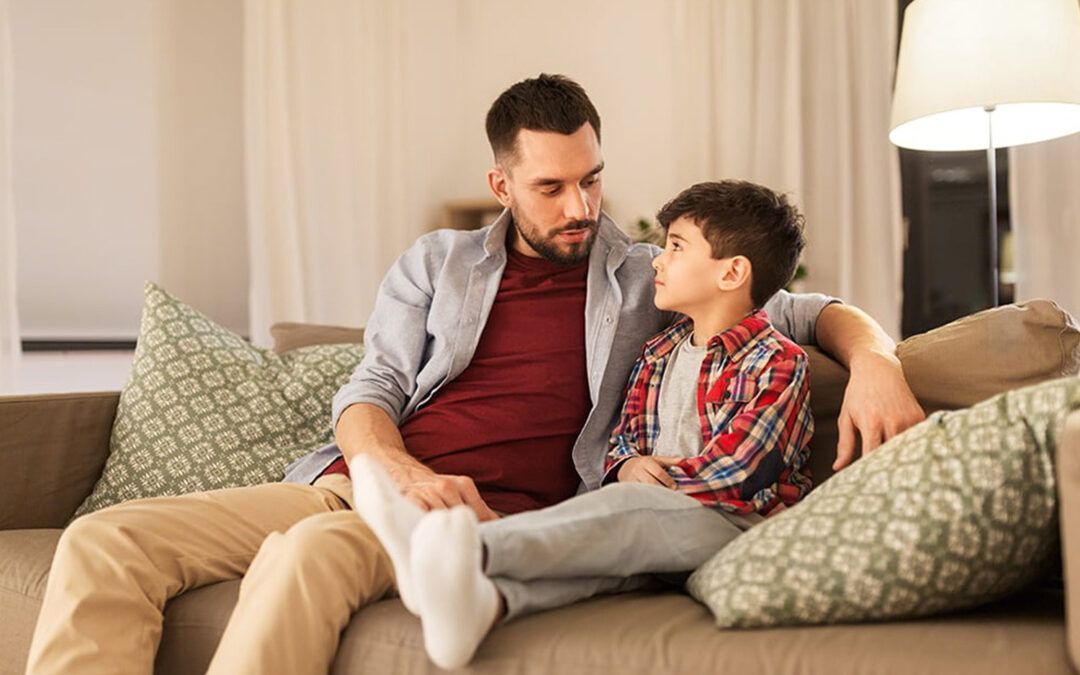
Talking to Kids about Tragedy
By Kathy Rivera, Executive Director/CEO, North Shore Child & Family Guidance Center
Children are always listening, even to things they may not have the ability to fully comprehend. Whether it be from social media, school, or adults in their lives, it’s inevitable that kids are hearing about the many tragedies that are occurring throughout the world today. Though a parent’s first instinct may be to shield their child from the anxiety and fear that comes with the unknown, avoiding the topic could leave their child feeling lost and helpless.
Discussing challenging world events with your children is a delicate but necessary task. By fostering trust, maintaining composure, promoting open communication, addressing social media influence, and helping children cope with anxiety, you can guide them through the complexities of the world while providing them with a safe and supportive environment. These conversations should be ongoing and adapted to your child’s age and maturity level as they grow and develop.
A foundation of trust
Children need to know that they can rely on their parents through hard times. It’s important to have a strong foundation of trust before going into any difficult conversation with your child. So, what’s the best way to do this? Dr. Sue Cohen, Director of Early Childhood and Psychological Services at North Shore Child & Family Guidance Center, highlights the importance of actively listening to your children. By paying attention to what they say, encouraging family conversations, and demonstrating mutual respect, you can build a strong foundation of trust. This is vital in helping your children navigate complex issues and challenges in the world.
Remain calm
Before explaining the news to children, it’s essential for parents to come to terms with it themselves. Kids are adept at picking up on adult emotions, often feeling affected by the stress, anger, and anxiety of their caregivers, so remaining composed while approaching the topic is crucial for effective communication. “Children feed into their parents’ tone, so if they give the information in a calm manner, children will know that they’re safe,” says Dr. Cohen.
Open communication
Parents should strive to understand what their children already know to gauge their exposure to external information. Get a sense of their awareness and correct any misinformation they may have encountered. Allow them to ask questions without judgment and answer them in an age-appropriate manner. For younger kids, assure them that the scary events are happening far away and that they are safe. For older children, stress the importance of finding reliable information on current events and knowing when to look away from the news.
Addressing social media
With the rise of technology and social media, kids today have unfiltered access to events happening anywhere in the world. What once could only be viewed on the nightly news or in the morning paper is now at our children’s fingertips 24/7. It is important to explain to tweens and teenagers the realities of social media. Anyone can have a platform on sites like TikTok and Instagram, which means that not everything they see is backed up by facts. Media literacy is taught in some schools, but it’s important to continue those lessons at home. Discuss the importance of finding primary sources, understanding biases, and recognizing historical context.
Dealing with anxiety
Exposure to tragic events can significantly increase anxiety levels in children, impacting their daily routine, sleep schedules, and eating habits. Dr. Cohen emphasizes the importance of maintaining regular routines, as children thrive on consistency. Encourage children to express their feelings through creative outlets like artwork and music, or by seeking support from a youth group or volunteer service. Staying mentally and physically active can significantly impact how children cope with distressing news.
Remember that support is there for your families as we all navigate this difficult time. Contact the North Shore Child & Family Guidance Center at 516-626-1971 if you or a loved one are struggling.
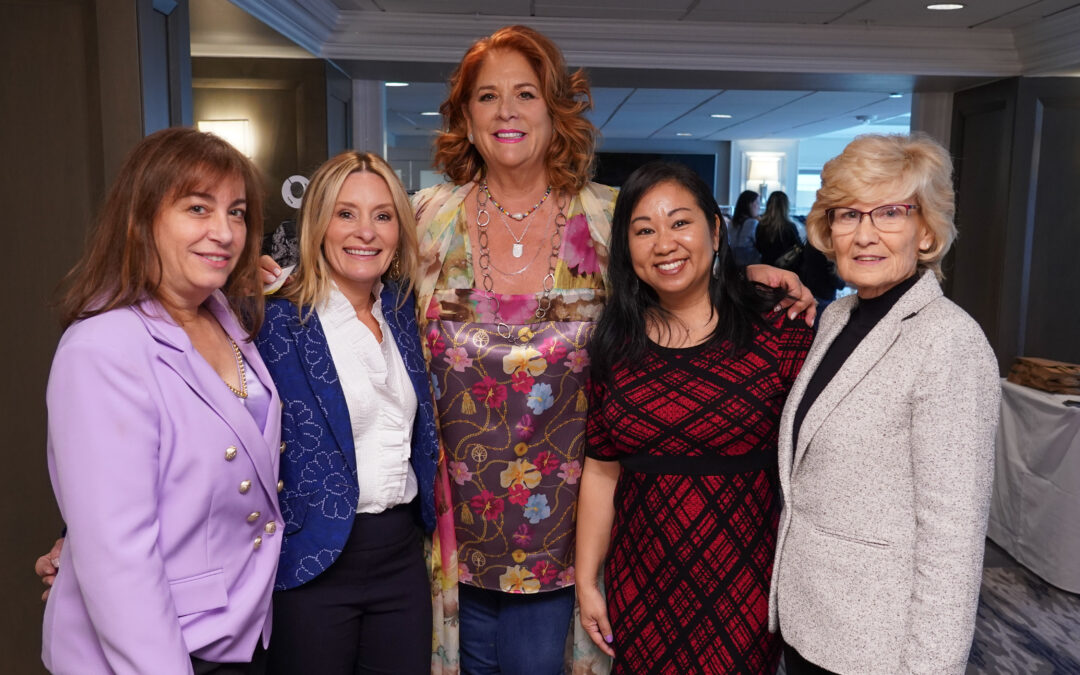
Guidance Center Spring Luncheon Raises Over $100,000
Roslyn Heights, NY, May 10, 2023—On Thursday, April 28, 2023, a sellout crowd of over 250 participants came together for North Shore Child & Family Guidance Center’s Annual Spring Luncheon. This year’s event, which supports the Guidance Center’s mission to restore and strengthen the emotional well-being of children and their families, garnered a record-breaking $100,000 in donations.
The gathering at Glenn Head Country Club started with a morning session of Mahjong and Canasta accompanied by exclusive shopping experiences from several of Long Island’s most fashionable and philanthropic small businesses including: Ameliora, Chintz Giraffe, Daniella Erin NYC, Dash Accessories, DeCorr & More, Designs that Donate, Eye Candy, Freida Rothman Jewelry, Kostume Klassics, Meryl Roesch Sunglasses, Simply Splendid Accessories, Tall Order, and Transitions.
After an elegant buffet lunch, event co-chair, Alexis Siegel, introduced the day’s speaker, Lisa Friedman Clark. The crowd was moved and enlivened by Ms. Clark’s inspirational story of overcoming considerable personal tragedy to become an advocate for mental health services and co-owner of the apparel company Tall Order.
“Lisa Friedman Clark’s story is remarkably moving,” said Alexis Siegel “Her continued strength, motivation, and resilience in the face of so much adversity is inspirational. Hearing about how the Guidance Center’s dedicated team of professionals played such a critical role in her family’s healing process makes me proud to be a part of this organization.”
The luncheon wouldn’t have been such a triumph without the hard work of the co-chairs, Jan Ashley, Amy Cantor and Alexis Siegel. “I am so grateful to everyone who participated in our Spring Luncheon event,” said Kathy Rivera Executive Director of the Guidance Center. “Together we are making our Long Island communities stronger by raising awareness and supporting our mission.”
The Guidance Center is also grateful for the support of its sponsors. They are: Americana Manhasset,
Amy Cantor, Alexis Siegel, Joan Grant, Klipper Family Foundation, NYU Langone Hospital – Long Island,
United Healthcare, Ruth Fortunoff Cooper, Nancy Lane, South Oaks Hospital and Zucker Hillside Hospital – Northwell Health, Marilyn Albanese, Janice Ashley, Stephanie Ginsberg, Janni and Associates, Andrea Leeds, Fara Copell, Stacy Hoffman, Debbie Klein, Cynthia Rubinberg, Janice Schlesinger, Joanne Silverman and Rachel Zuckerbrot.

Pictured from left: Michele Frankel, Andrea Leeds, Faith Lerner, and Michele Freidus
Feature Photo: pictured from left: Amy Cantor, Kathy Rivera, Alexis Siegel, Lisa Friedman Clark
About Us:
As the preeminent not-for-profit children’s mental health agency on Long Island, North Shore Child & Family Guidance Center is dedicated to restoring and strengthening the emotional well-being of children (from birth – age 24) and their families. Our highly trained staff of psychiatrists, psychologists, social workers, vocational rehabilitation counselors and other mental health professionals lead the way in diagnosis, treatment, prevention, training, parent education, research and advocacy. The Guidance Center helps children and families address issues such as depression and anxiety; developmental delays; bullying; teen pregnancy; sexual abuse; teen drug and alcohol abuse; and family crises stemming from illness, death, trauma and divorce. For more than 65 years, the Guidance Center has been a place of hope and healing, providing innovative and compassionate treatment to all who enter our doors, regardless of their ability to pay. For more information about the Guidance Center, visit www.northshorechildguidance.org or call (516) 626-1971.
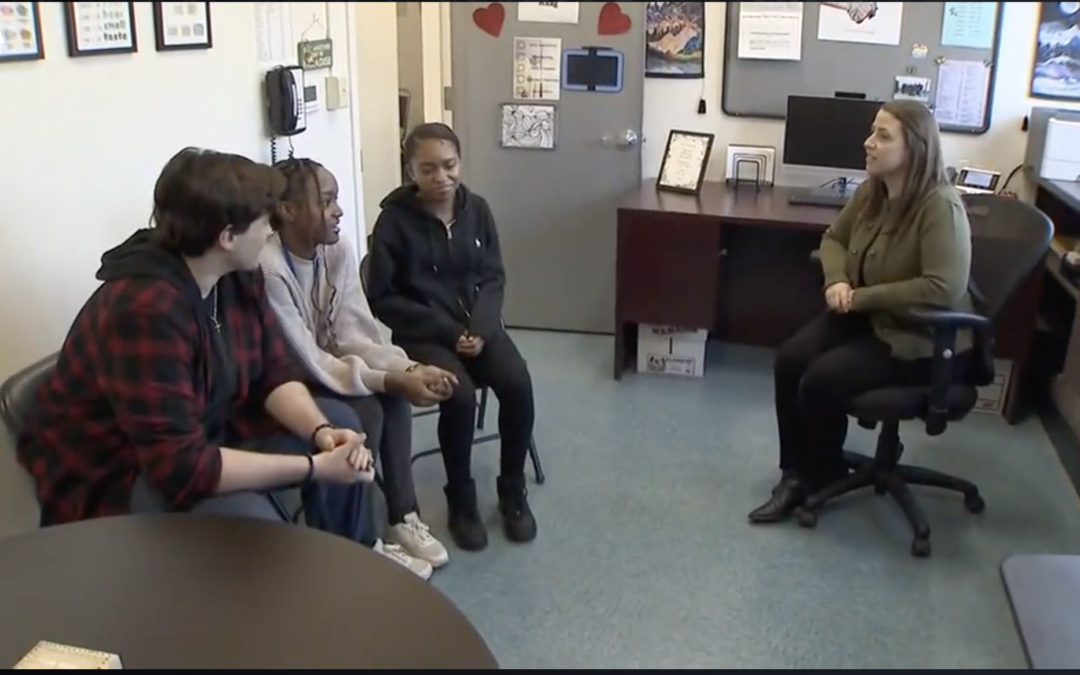
Breaking the Stigma: Children and Mental Health, CBS News Special, March 16, 2023, featuring Kathy Rivera


